It looks like you're using an Ad Blocker.
Please white-list or disable AboveTopSecret.com in your ad-blocking tool.
Thank you.
Some features of ATS will be disabled while you continue to use an ad-blocker.
share:
Decided to make a followup to my original thread, as there is never a shortage of amazing and wierd photos from space..
But first I wanted to give a small overview of galaxies and the different types that exist..
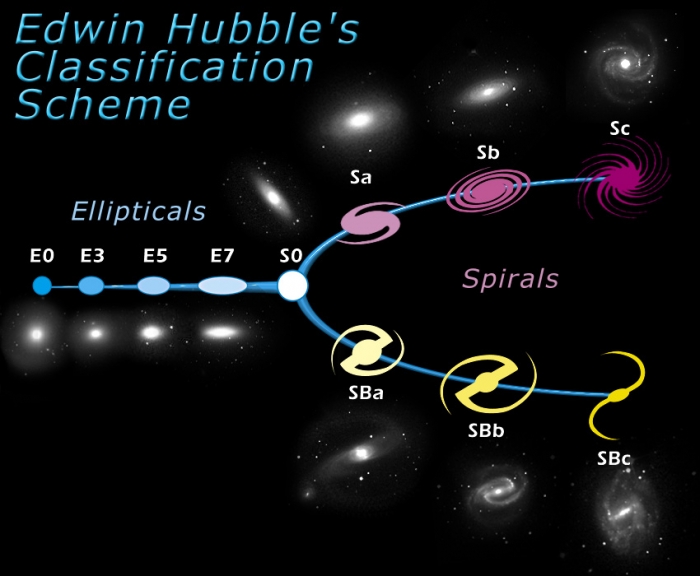
A few telescopic surveys of the same galaxies were done to determine the different types of galaxies, one of them was called the "SINGS" (regular spectrum) survey"
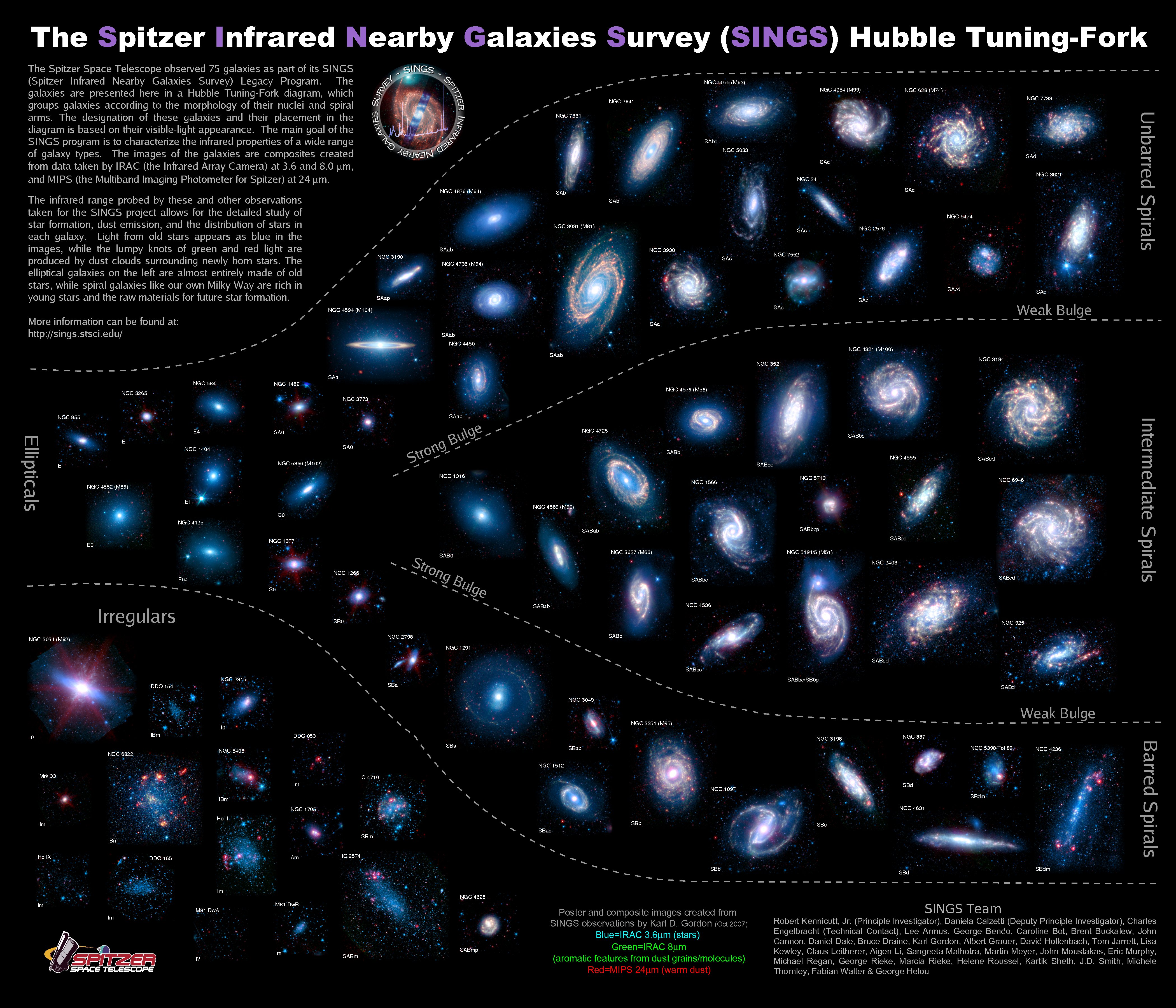
and the other called "KINGFISH" NOTE the difference in appearances between the 2 surveys, remember they are imaging the same galaxies, but in spectrum's which are unseen to the naked eye (infrared, ultraviolet, etc):
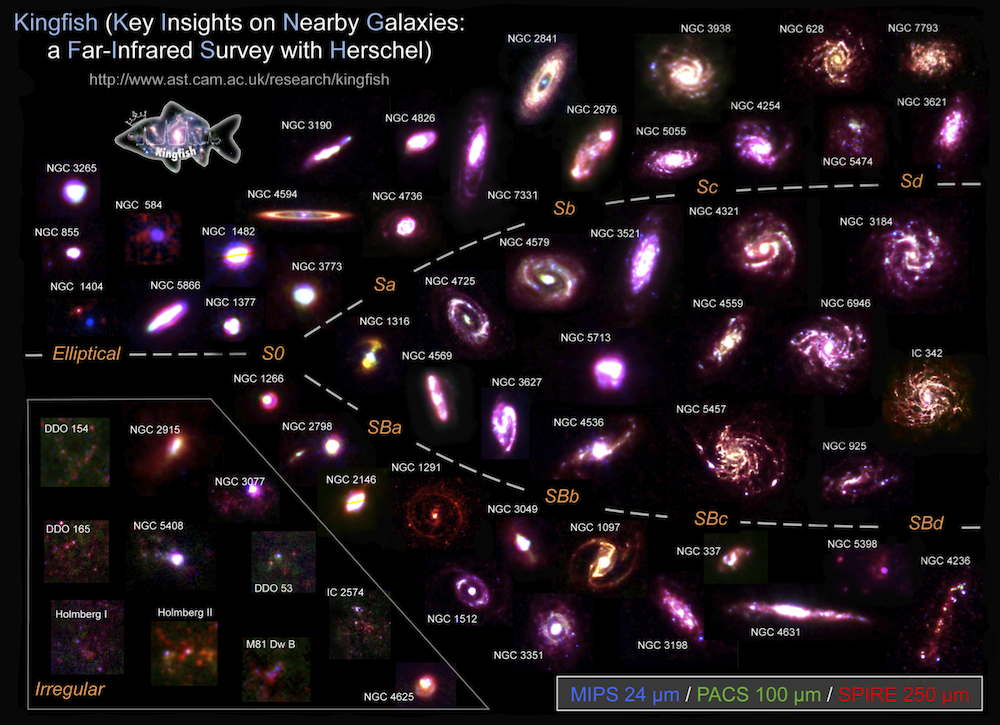
link1
link2
And now for some obligatory space photos, which can all be found HERE:
Supernova 1987A:
Two decades ago, astronomers spotted one of the brightest exploding stars in more than 400 years.
Since that first sighting, the doomed star, called Supernova 1987A, has continued to fascinate astronomers with its spectacular light show. NASA's Hubble Space Telescope is one of many observatories that has been monitoring the blast's aftermath.
This image shows the entire region around the supernova. The most prominent feature in the image is a ring with dozens of bright spots. A shock wave of material unleashed by the stellar blast is slamming into regions along the ring's inner regions, heating them up, and causing them to glow. The ring, about a light-year across, was probably shed by the star about 20,000 years before it exploded.
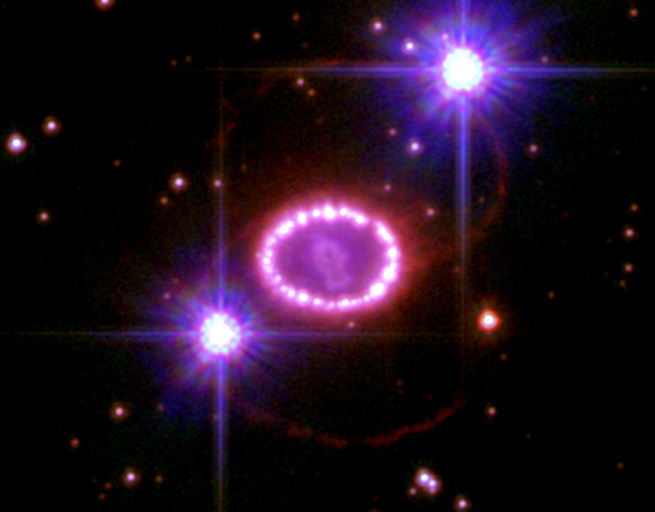
Spiral Galaxy NGC 4622 Spins "Backwards":
Astronomers have found a spiral galaxy that may be spinning to the beat of a different cosmic drummer... To the surprise of astronomers, the galaxy, called NGC 4622, appears to be rotating in the opposite direction to what they expected..
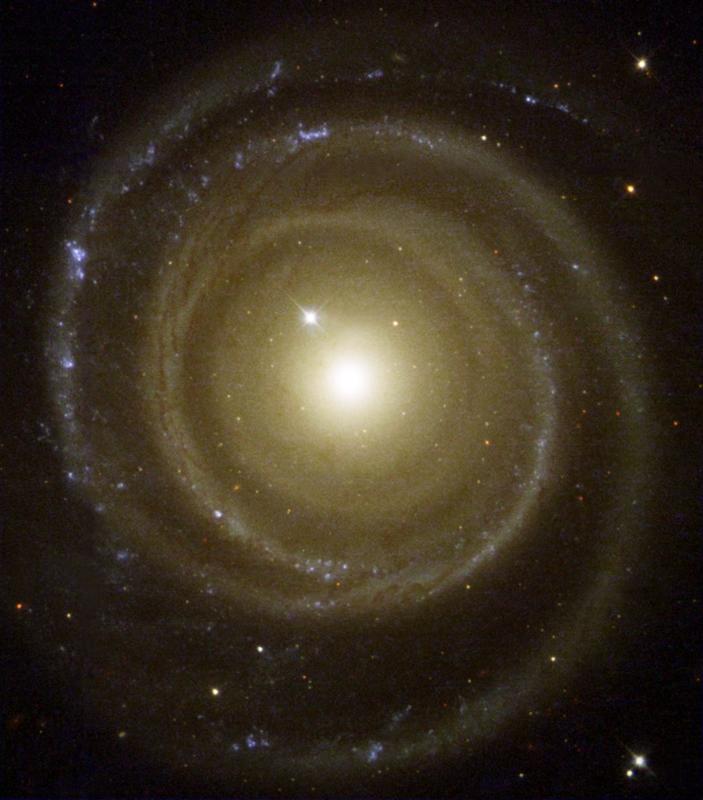
Ring of Hot Blue Stars Pinwheels Around Yellow Nucleus of Hoag's Object Galaxy:
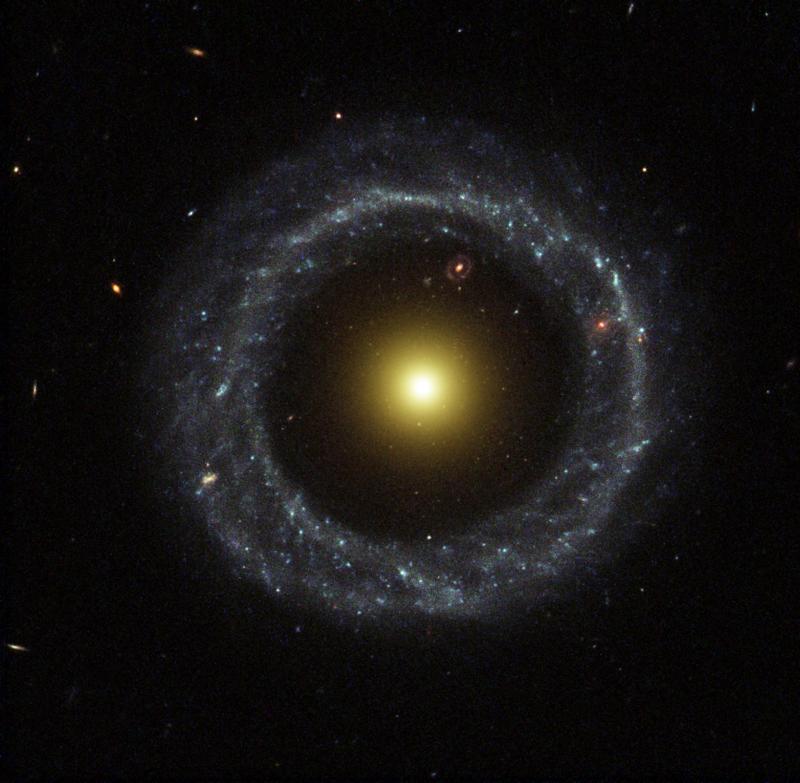
Two galaxies swing past each other in a graceful performance choreographed by gravity. This is one of hundreds of interacting and merging galaxies known in our nearby universe:
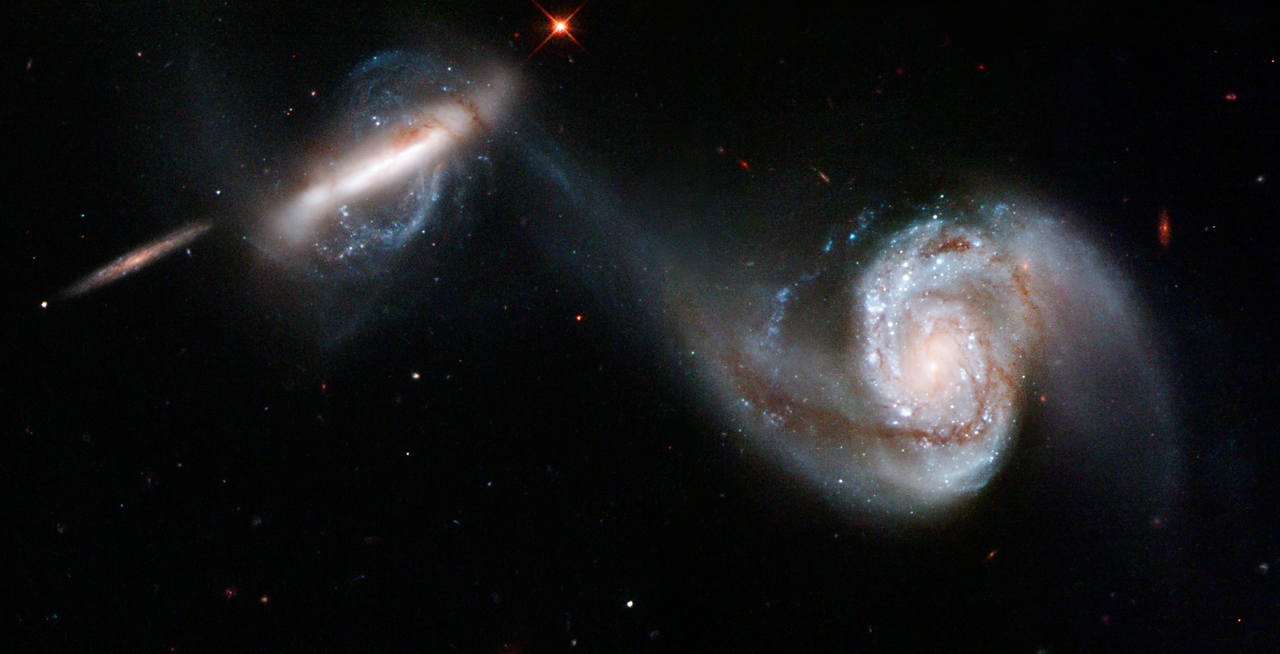
Hubble-Magellan Composite of M83:
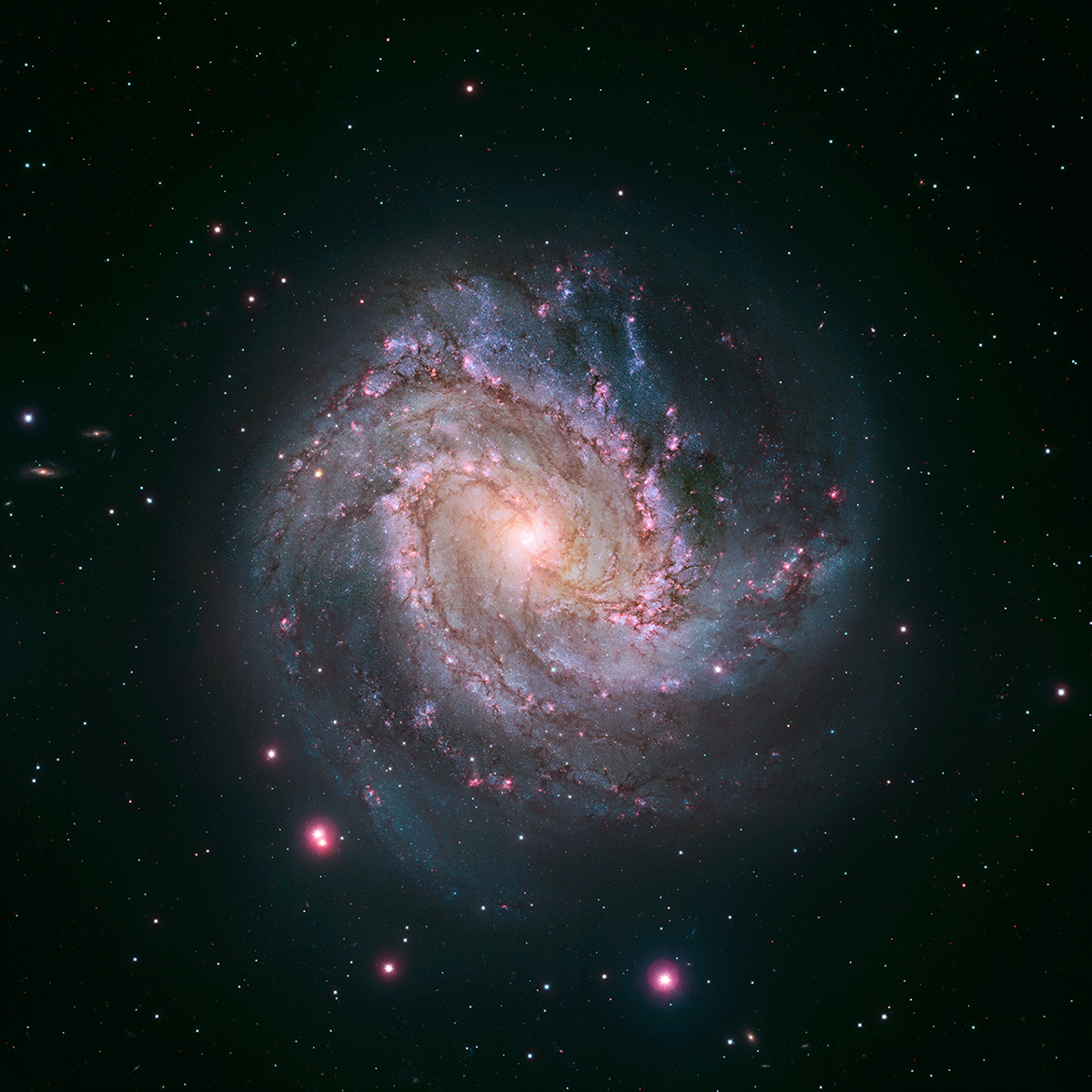
Pandora's Cluster – Abell 2744:
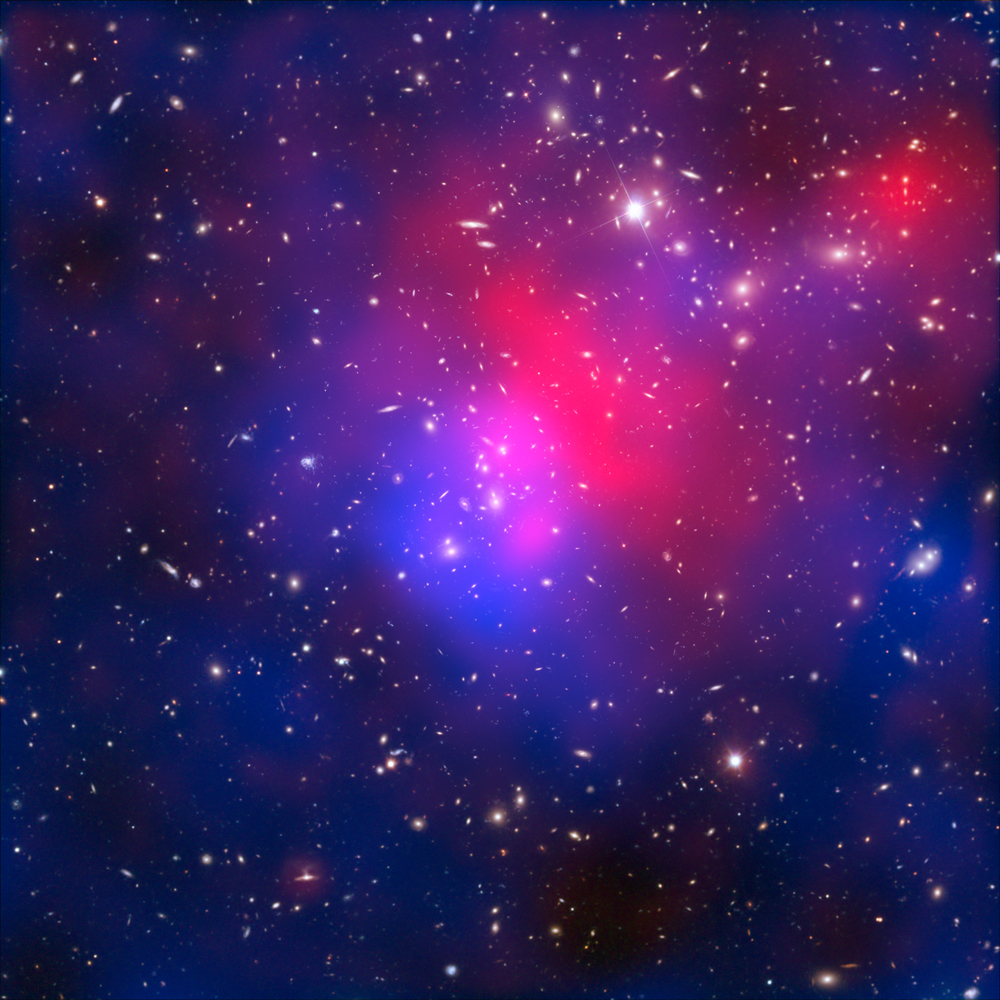
Star V838 Monocerotis (V838 Mon):
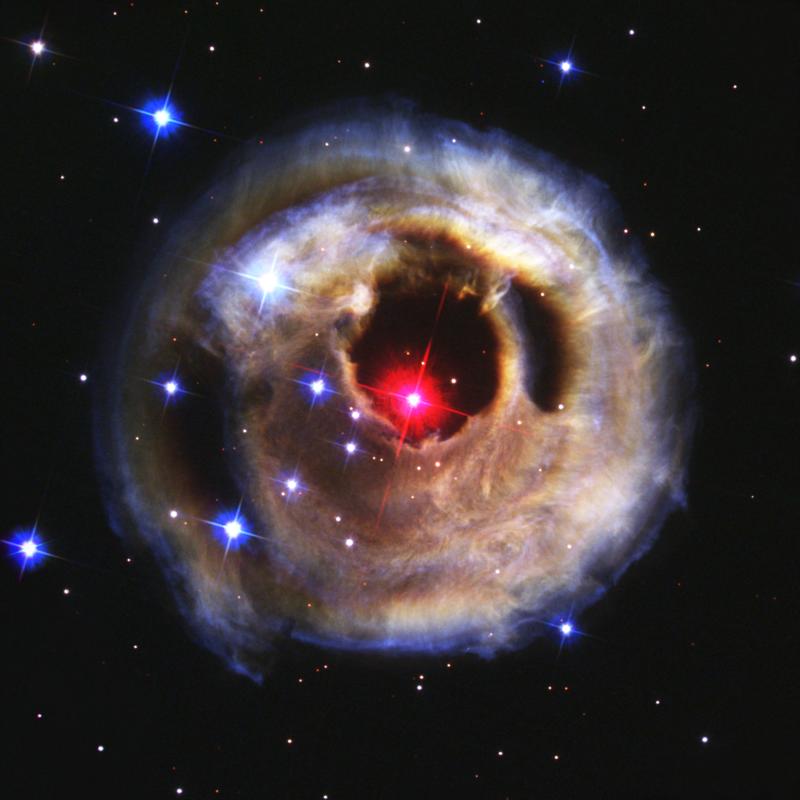
When a massive star exploded, spewing out its gaseous layers into a turbulent, star-forming region of the Large Magellanic Cloud, it left behind this chaotic cloud of gas and dust. The star that produced this supernova remnant was probably 50 times the mass of our Sun:
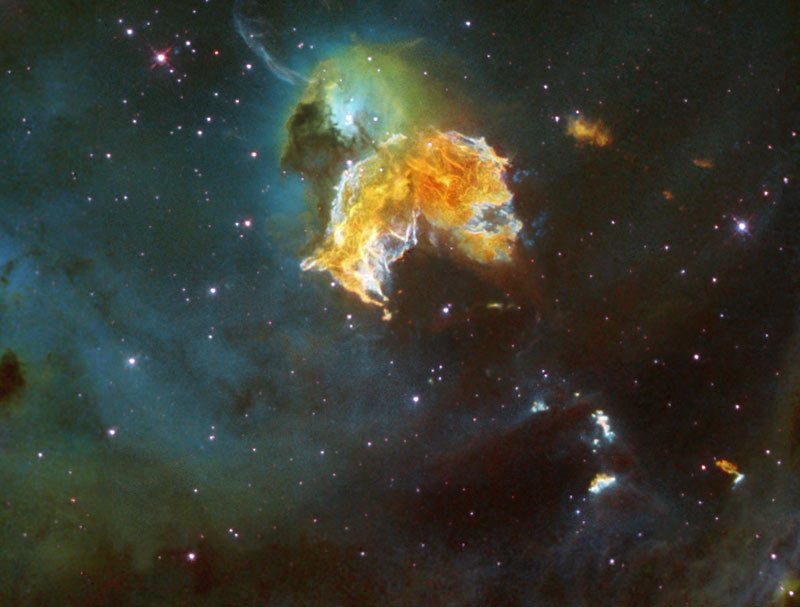
Cassiopeia A: Colorful, Shredded Remains of Old Supernova:
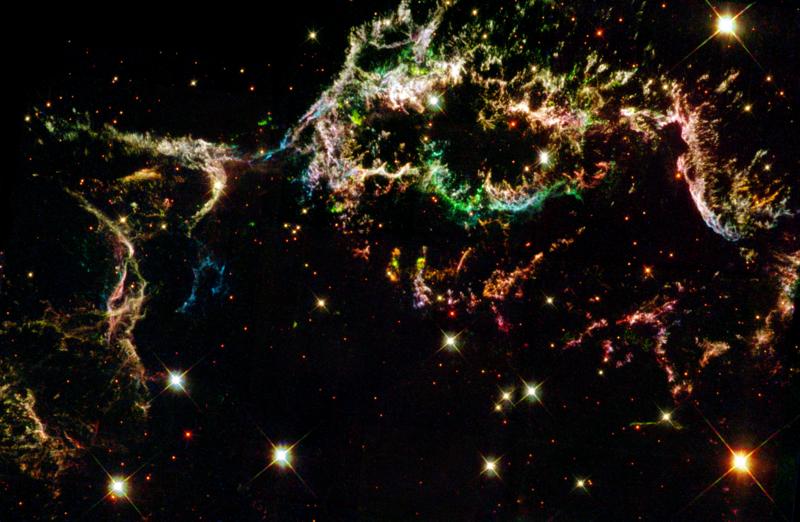
Mars:
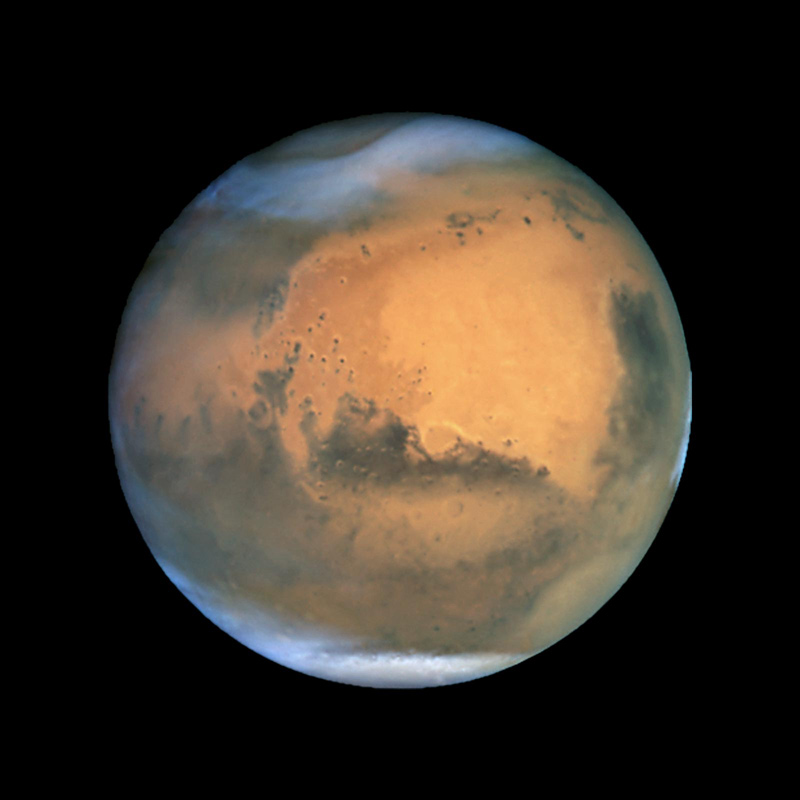
Multiple Impacts From Comet P/Shoemaker-Levy 9 on Jupiter:
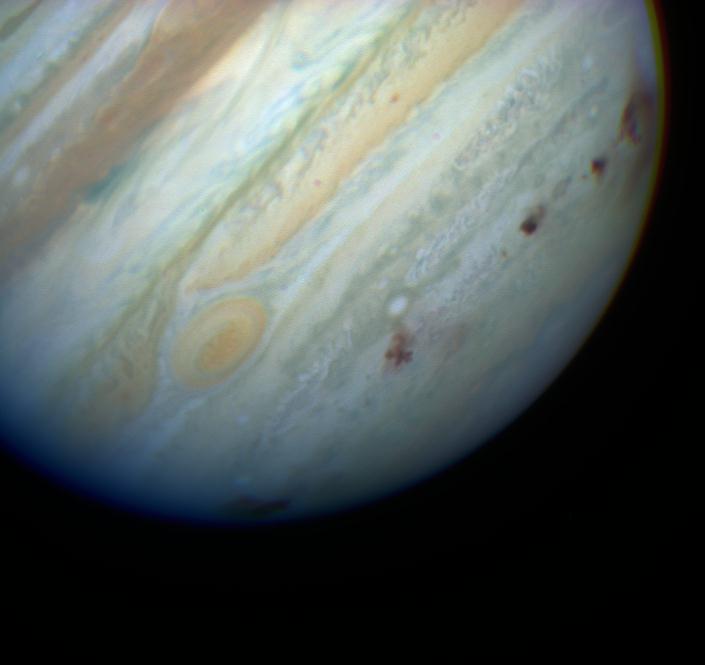
Bright Clouds on Uranus:
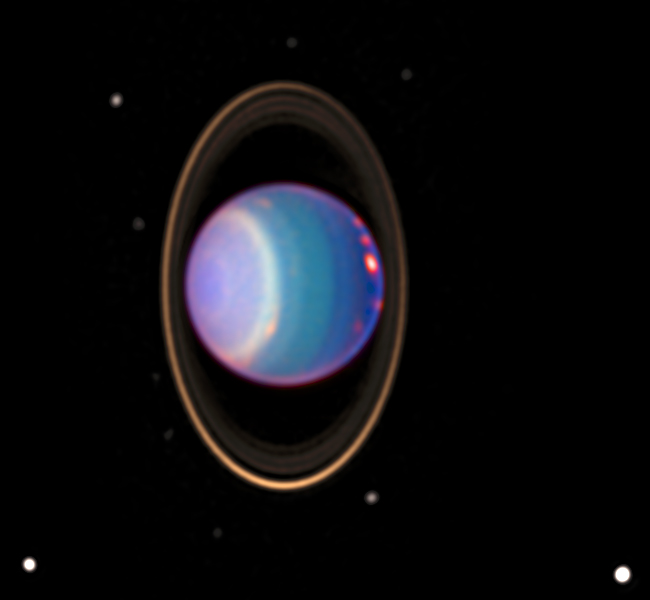
Saturn's Ultraviolet Aurora:
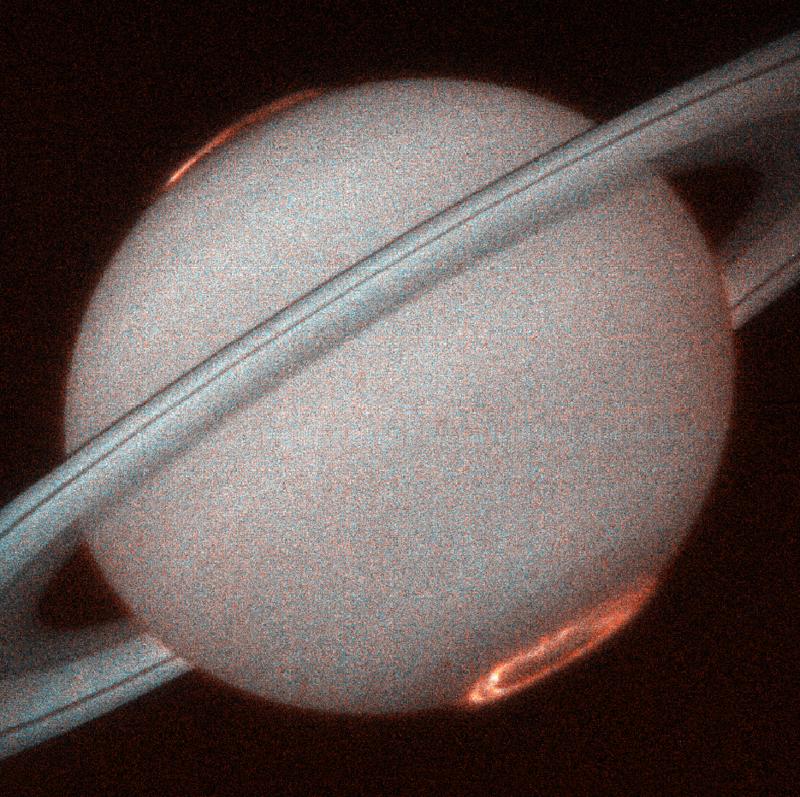
Hubble Shows that Jupiter's Great Red Spot Is Smaller than Ever Seen Before:
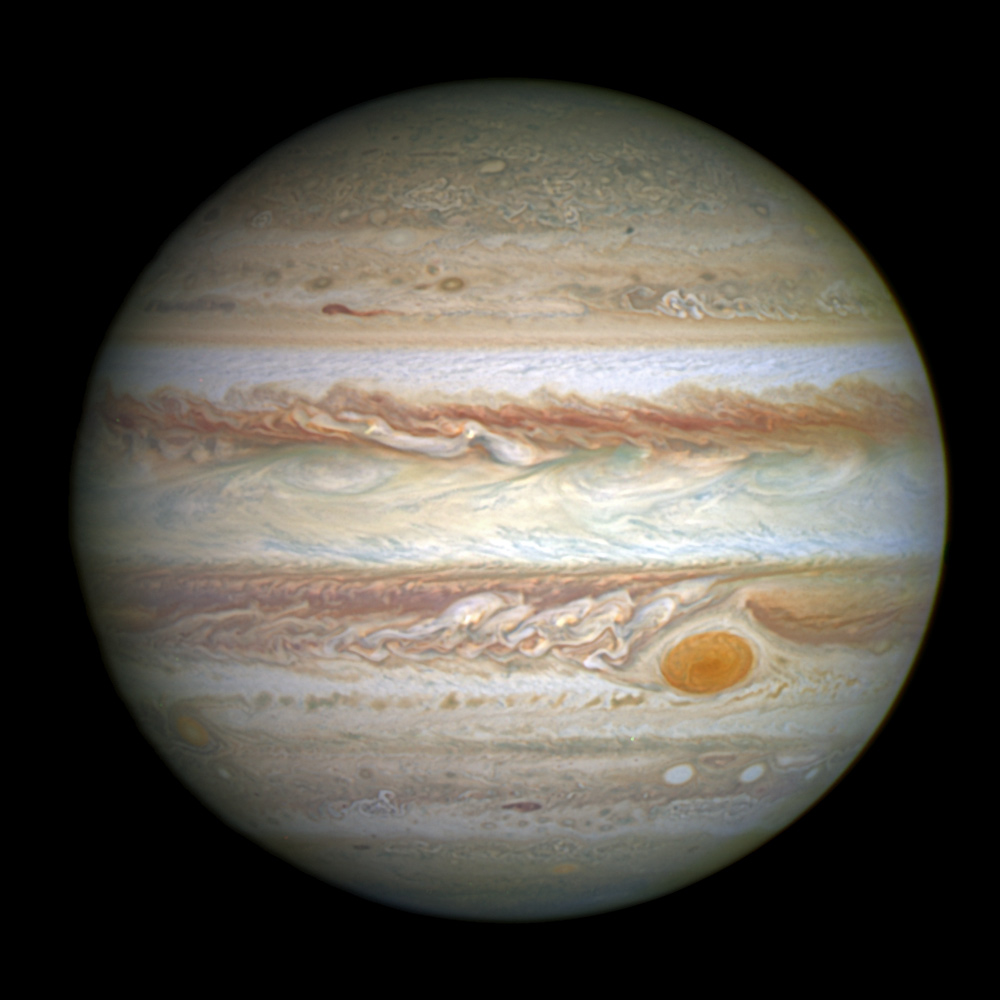
In this image by NASA's Hubble Space Telescope, an unusual, ghostly green blob of gas appears to float near a normal-looking spiral galaxy:
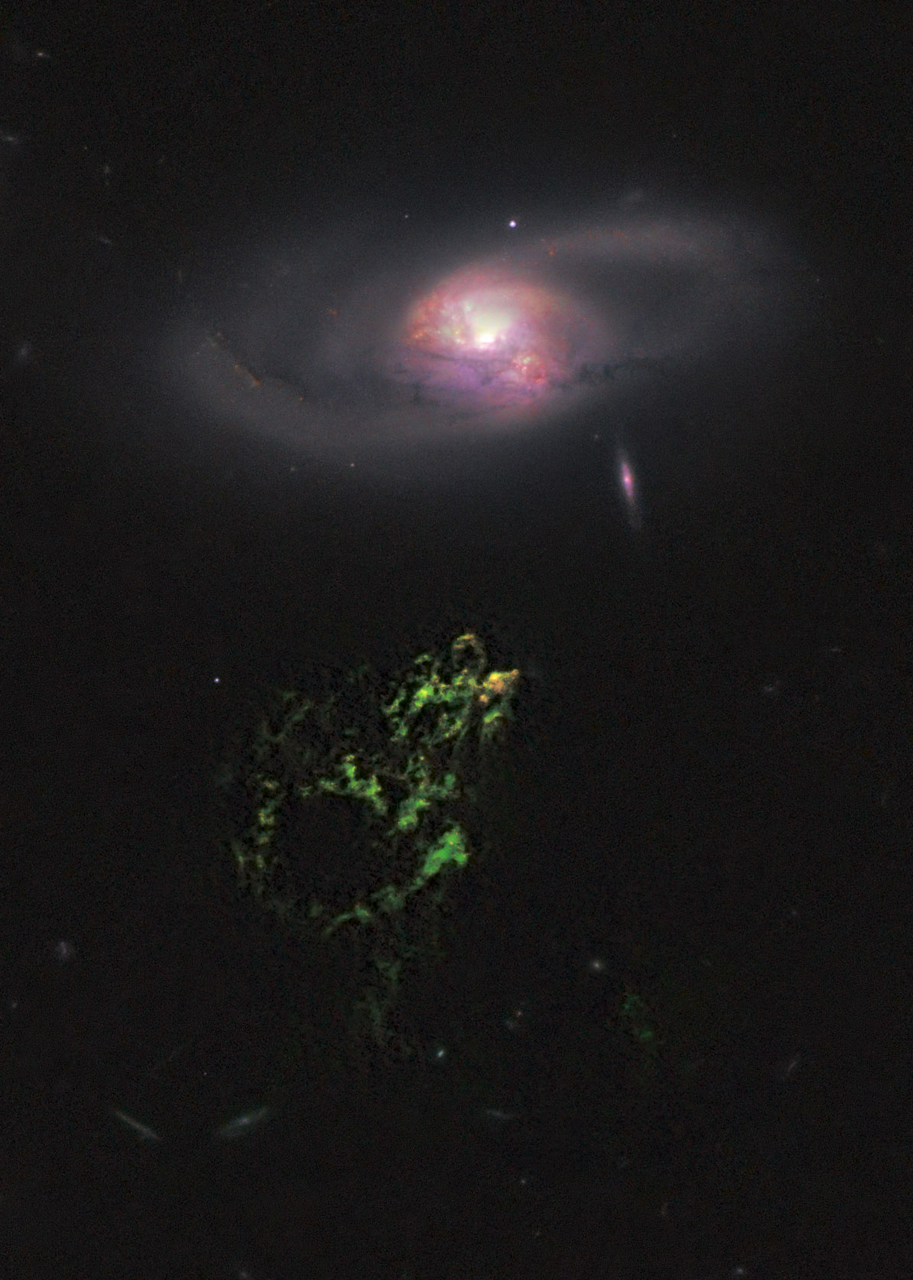
Looking like an apparition rising from whitecaps of interstellar foam, the iconic Horsehead Nebula has graced astronomy books ever since its discovery over a century ago:
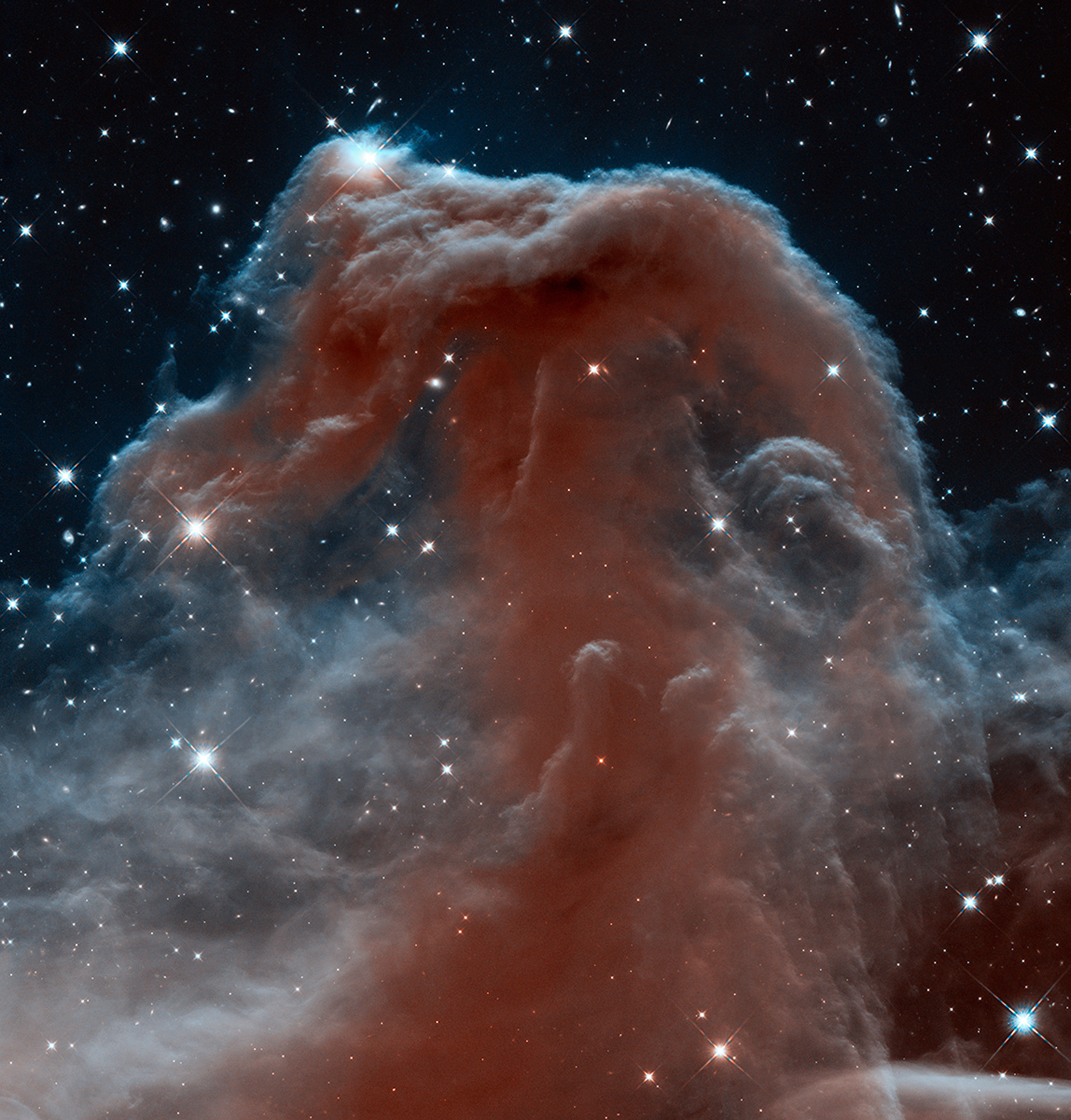
Dark Globule and Stellar Jet in the Carina Nebula:
The tadpole-looking feature in the center of this image is a nodule of cold hydrogen gas laced with dust.
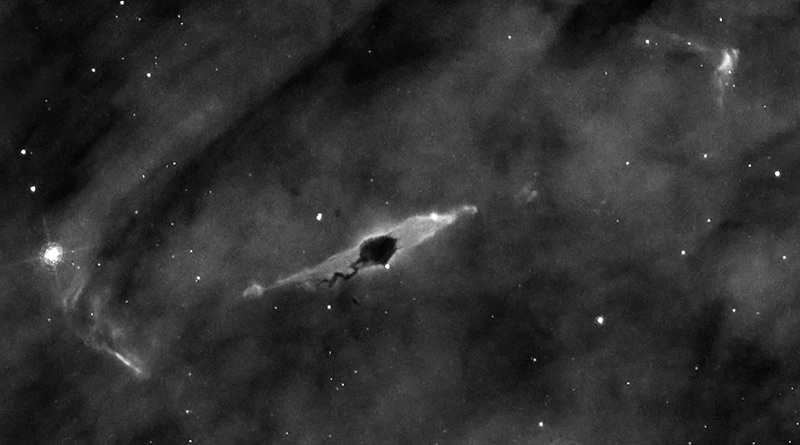
Close Up of Ancient, White Dwarf Stars in the Milky Way Galaxy:
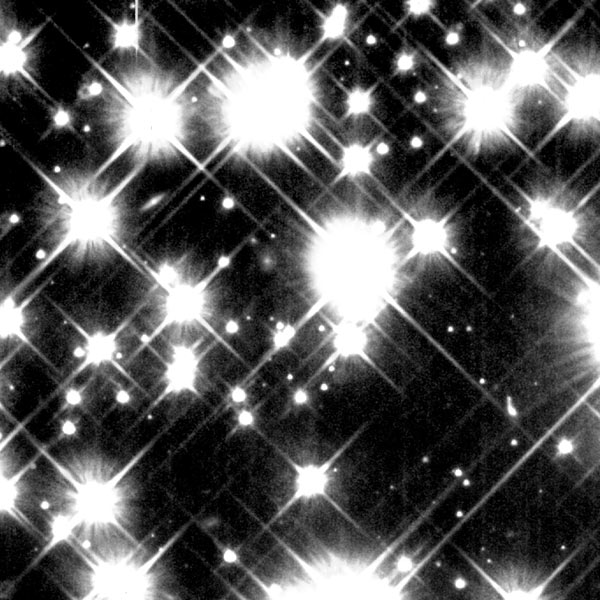
A planetary nebula called NGC 5189. The intricate structure of this bright gaseous nebula resembles a glass-blown holiday ornament with a glowing ribbon entwined:
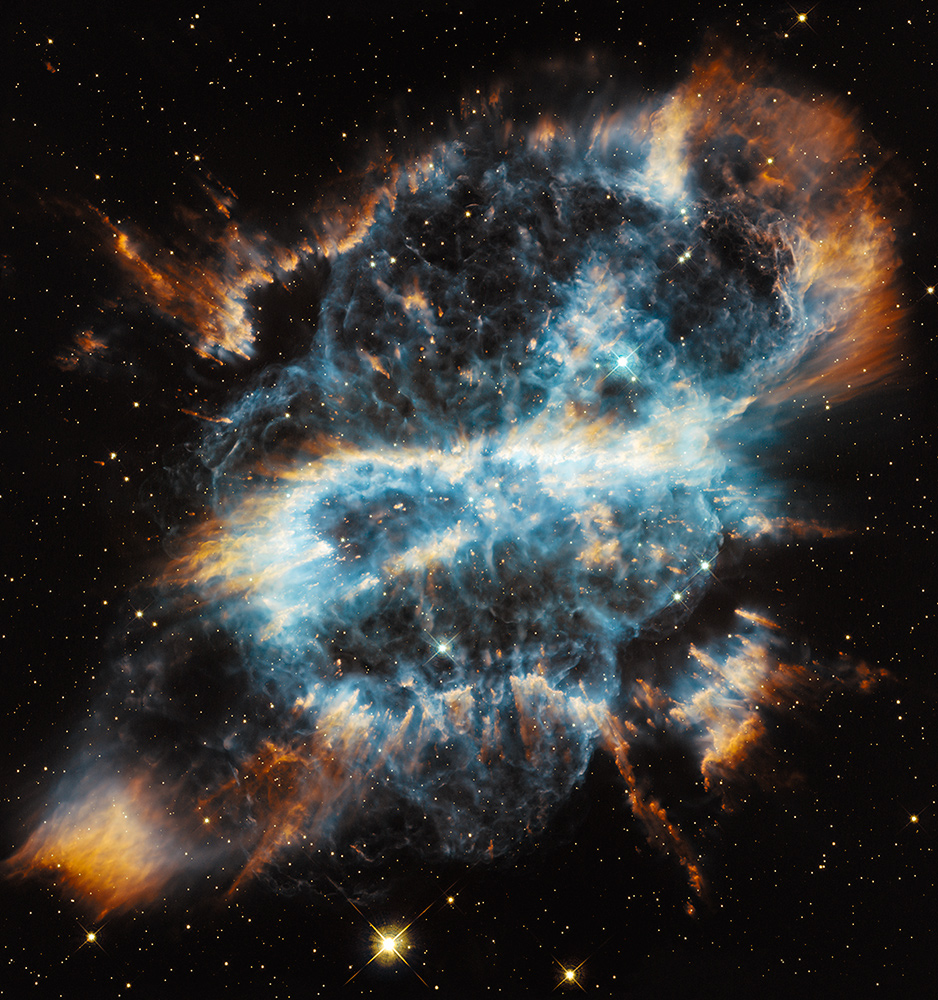
The Bug Nebula, NGC 6302, is one of the brightest and most extreme planetary nebulae known. The fiery, dying star at its center is shrouded by a blanket of icy hailstones. This NASA Hubble Wide Field Plantery Camera 2 image shows impressive walls of compressed gas, laced with trailing strands and bubbling outflows:
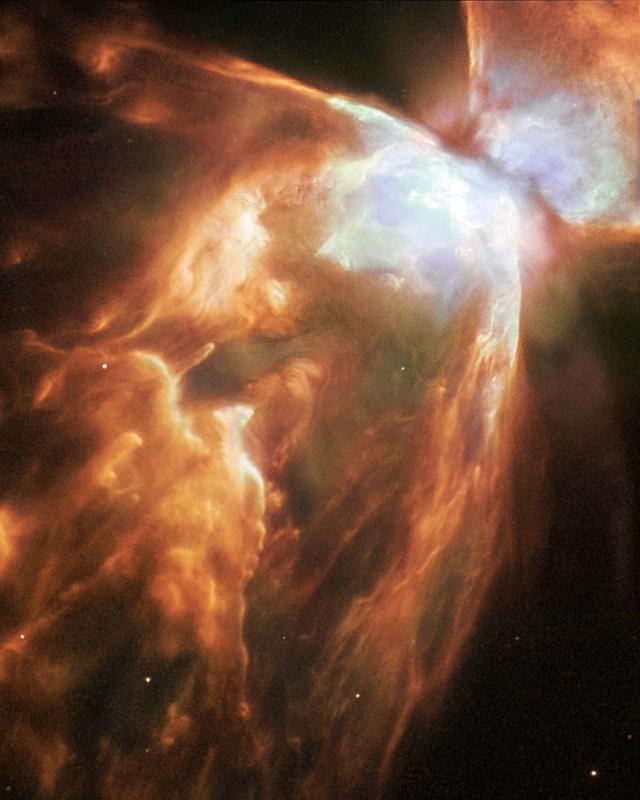
Celestial Fireworks: Sheets of Debris From a Stellar Explosion (N 49, DEM L 190):
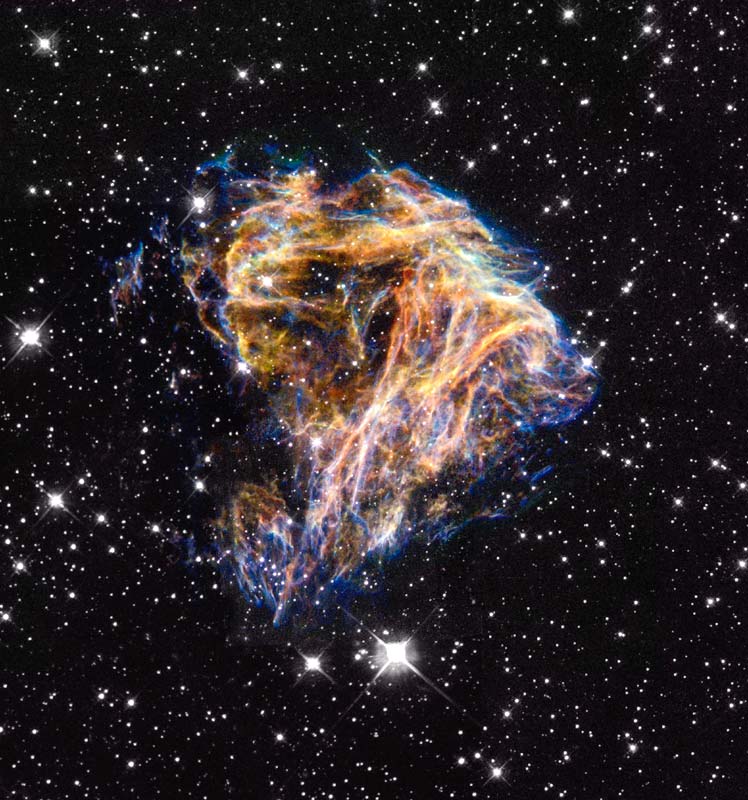
This is a false-color view of a planetary debris disk encircling the star HD 107146, a yellow dwarf star very similar to our Sun, this is the only disk to have been imaged around a star so much like our own.
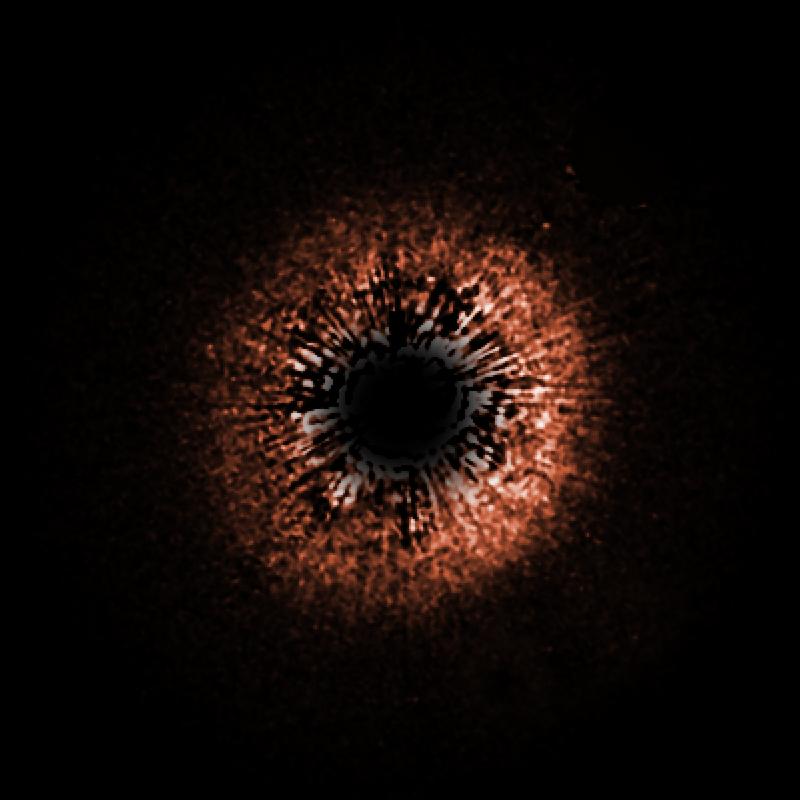
Hubble Supernova Bubble Resembles Holiday Ornament:
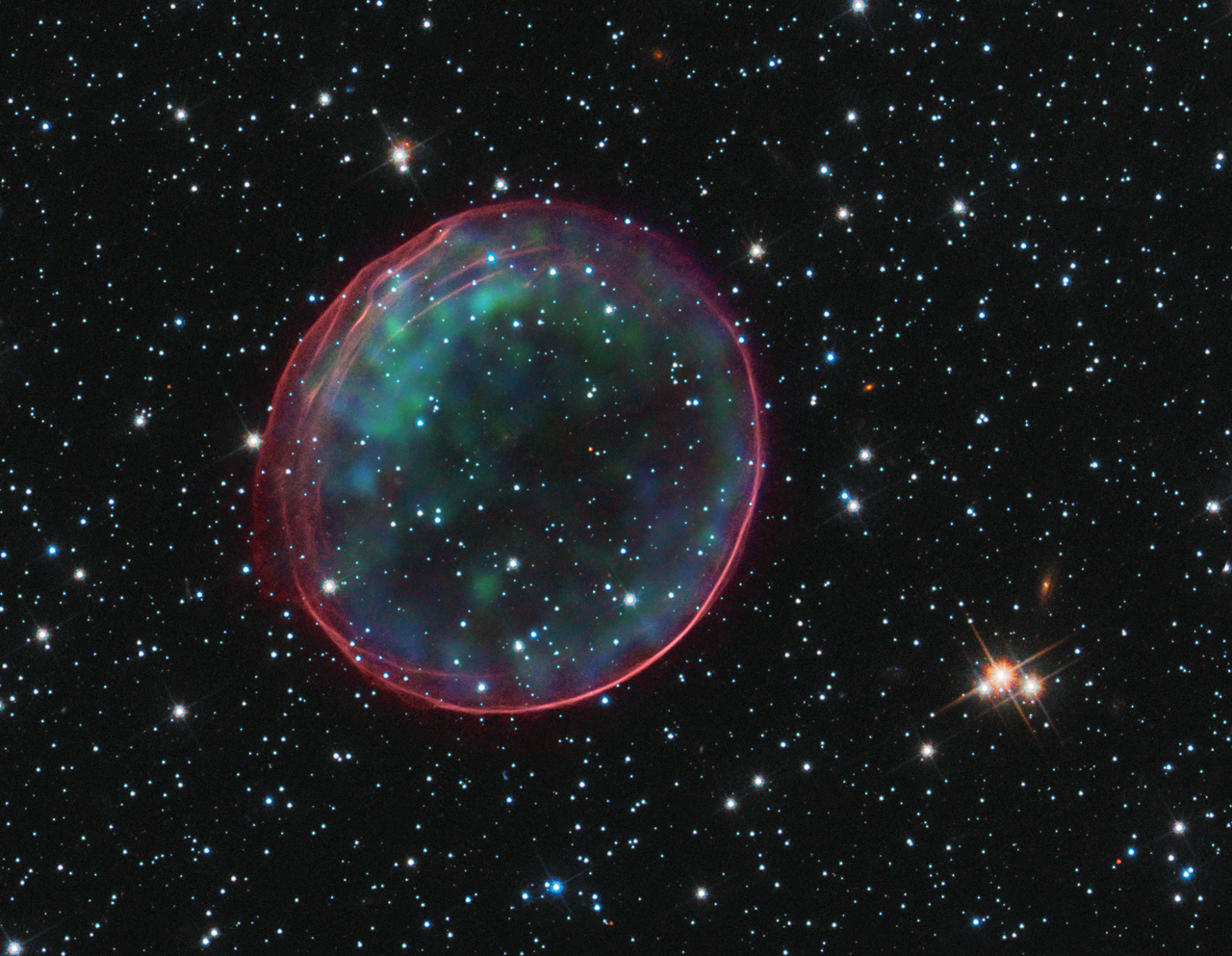
The Veil Nebula, left behind by the explosion of a massive star thousands of years ago, is one of the largest and most spectacular supernova remnants in the sky. This is only a small section of it:
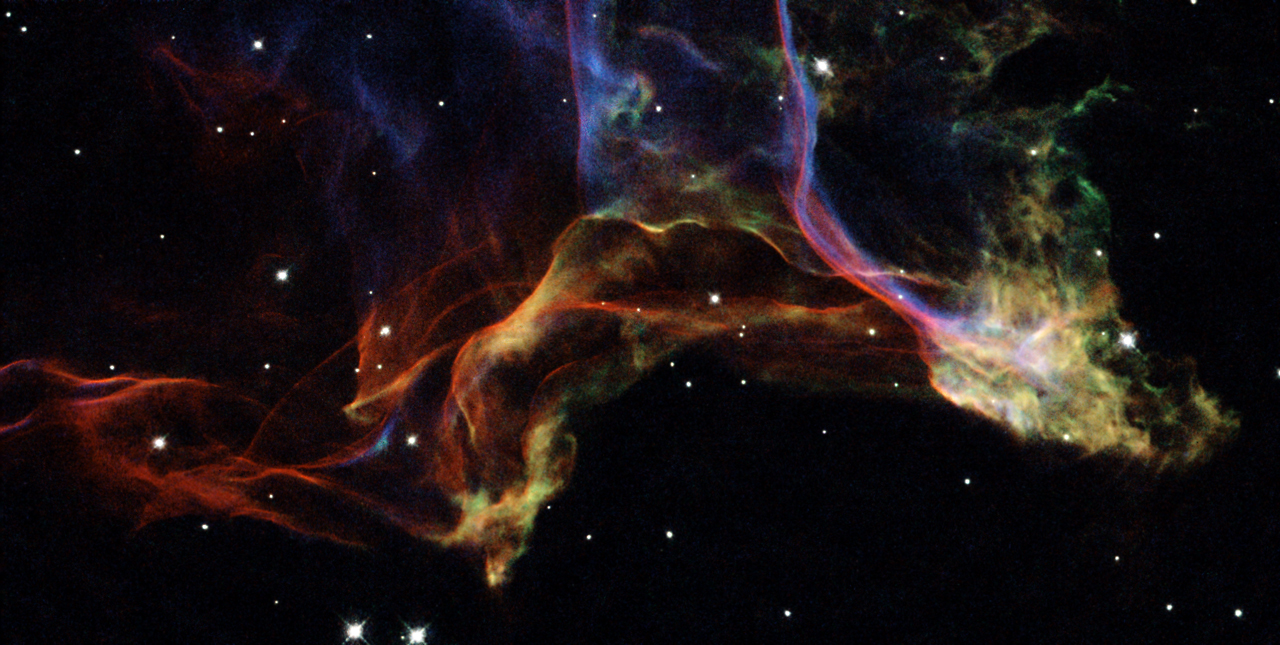
Hubble Sees a Cosmic Caterpillar:
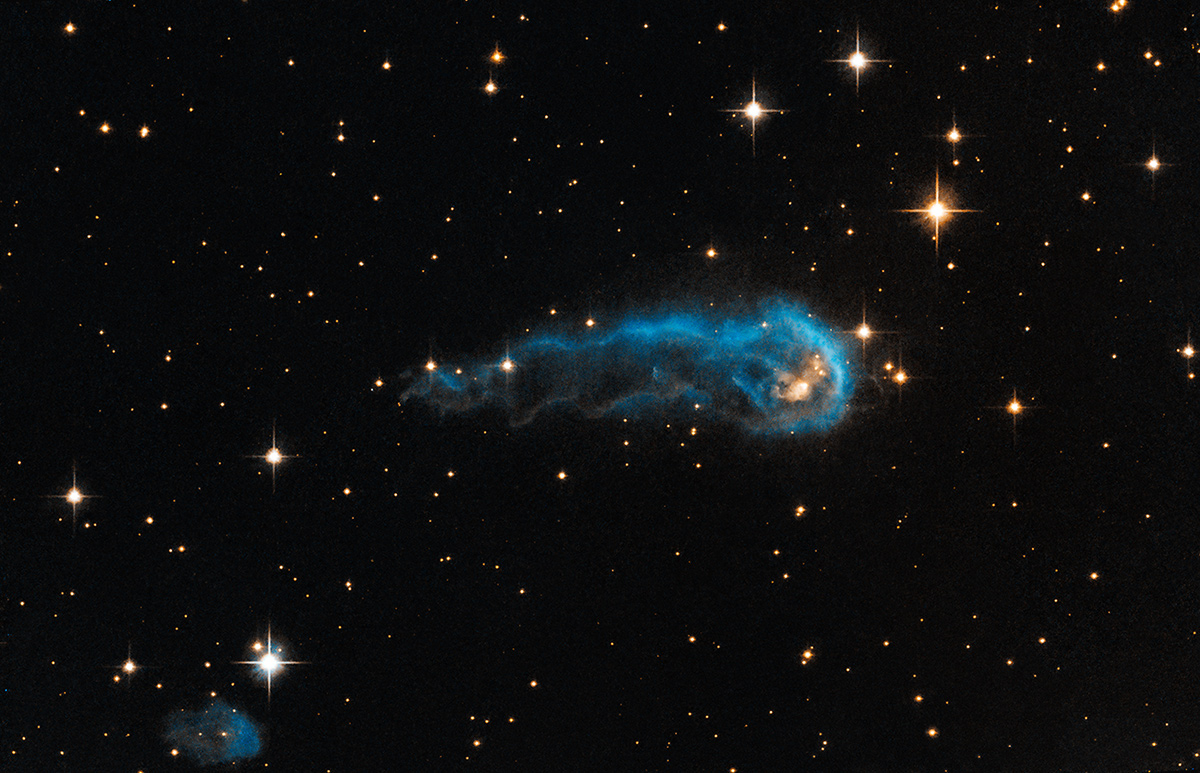
The Necklace Nebula:
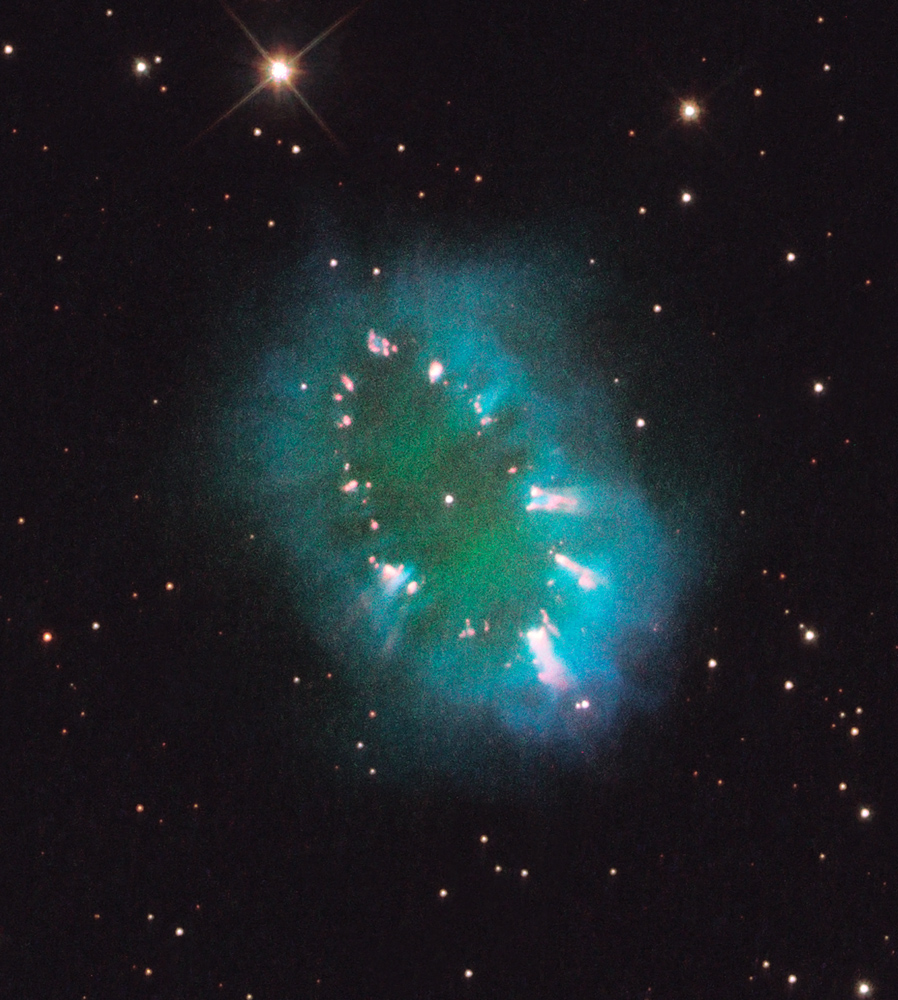
Saturn's Dynamic Auroras:
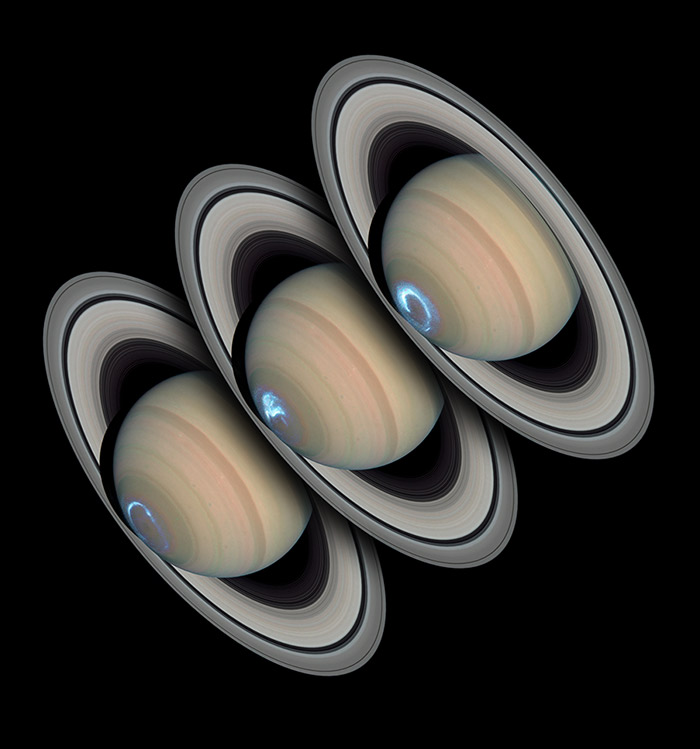
Doomed Star Eta Carinae:
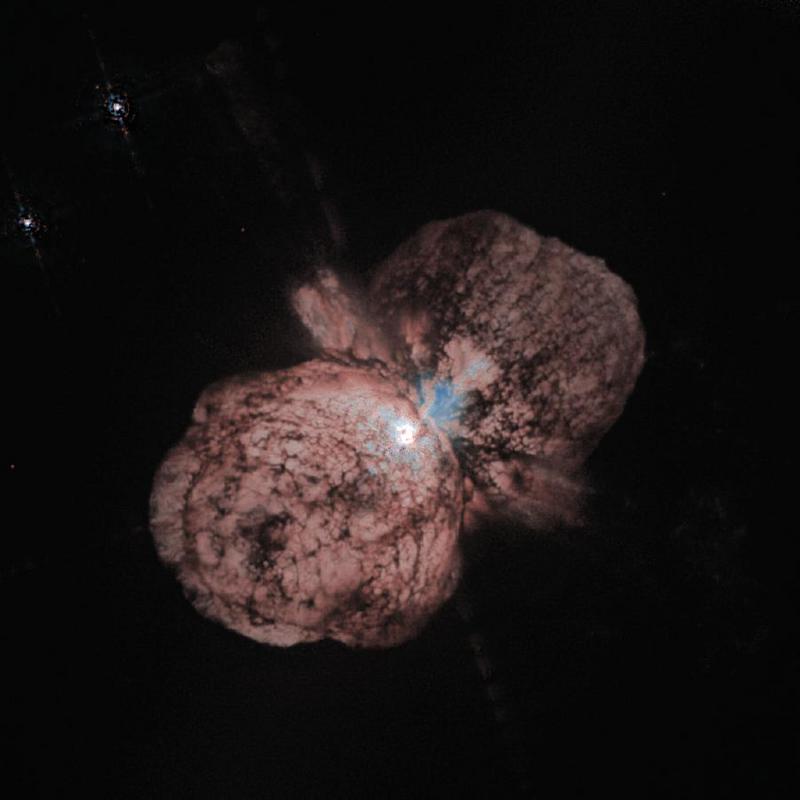
Hubble Space Telescope Image of Globular Cluster NGC 6397
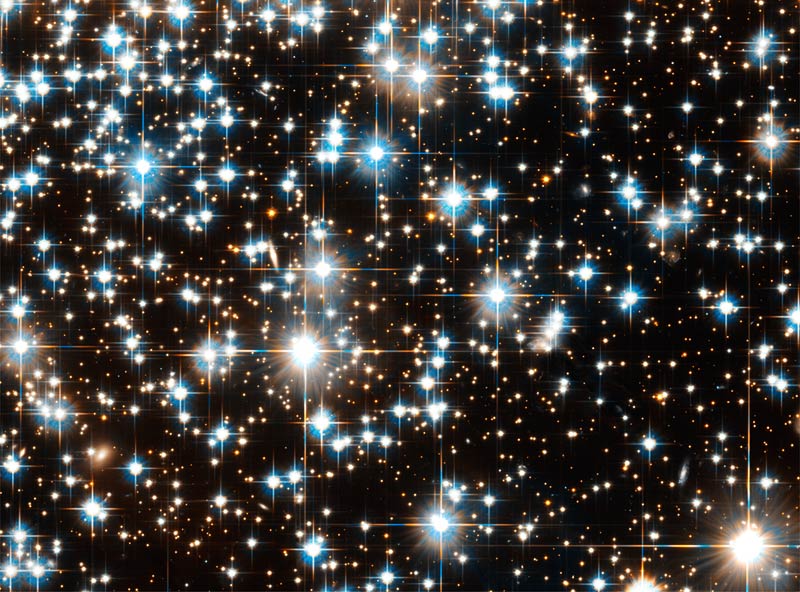
Anything that ever happened, to anyone, in all of history happened here:
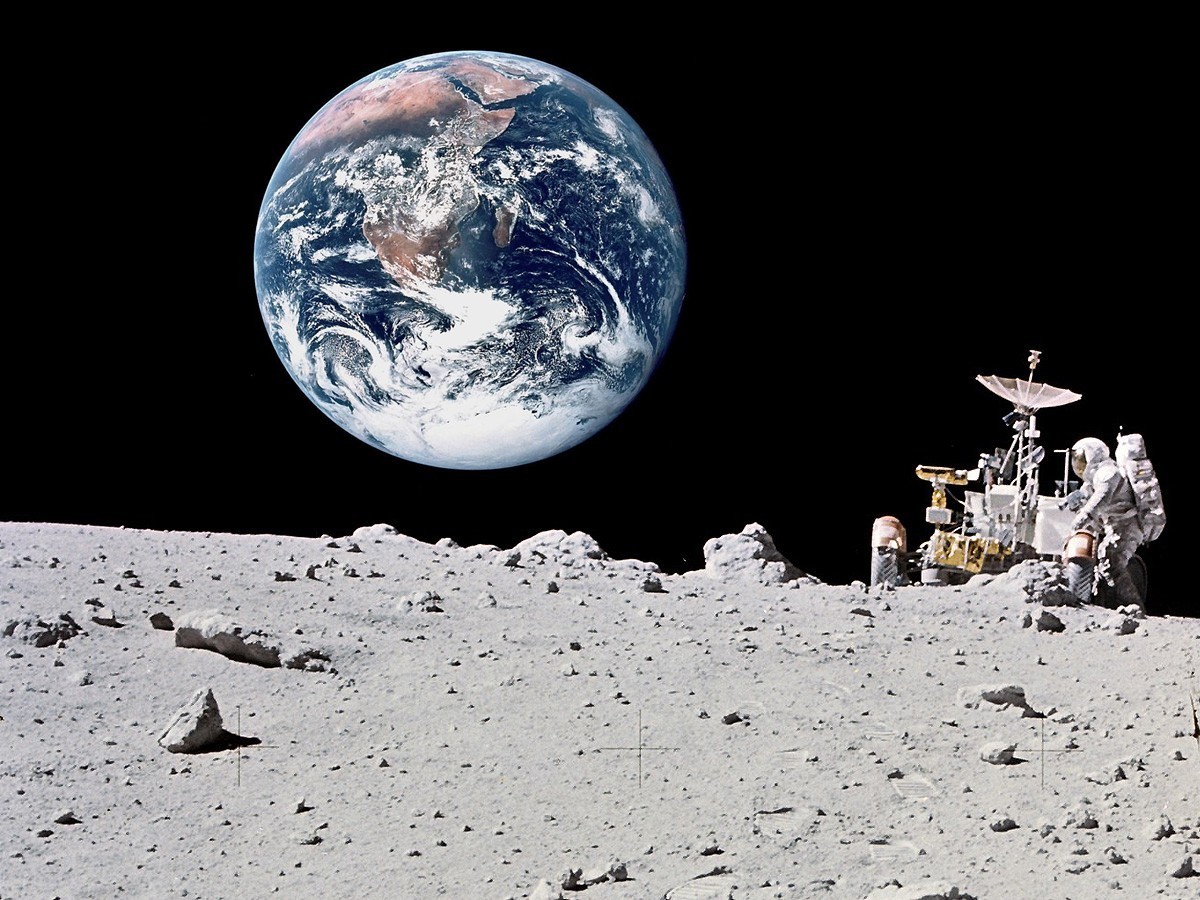
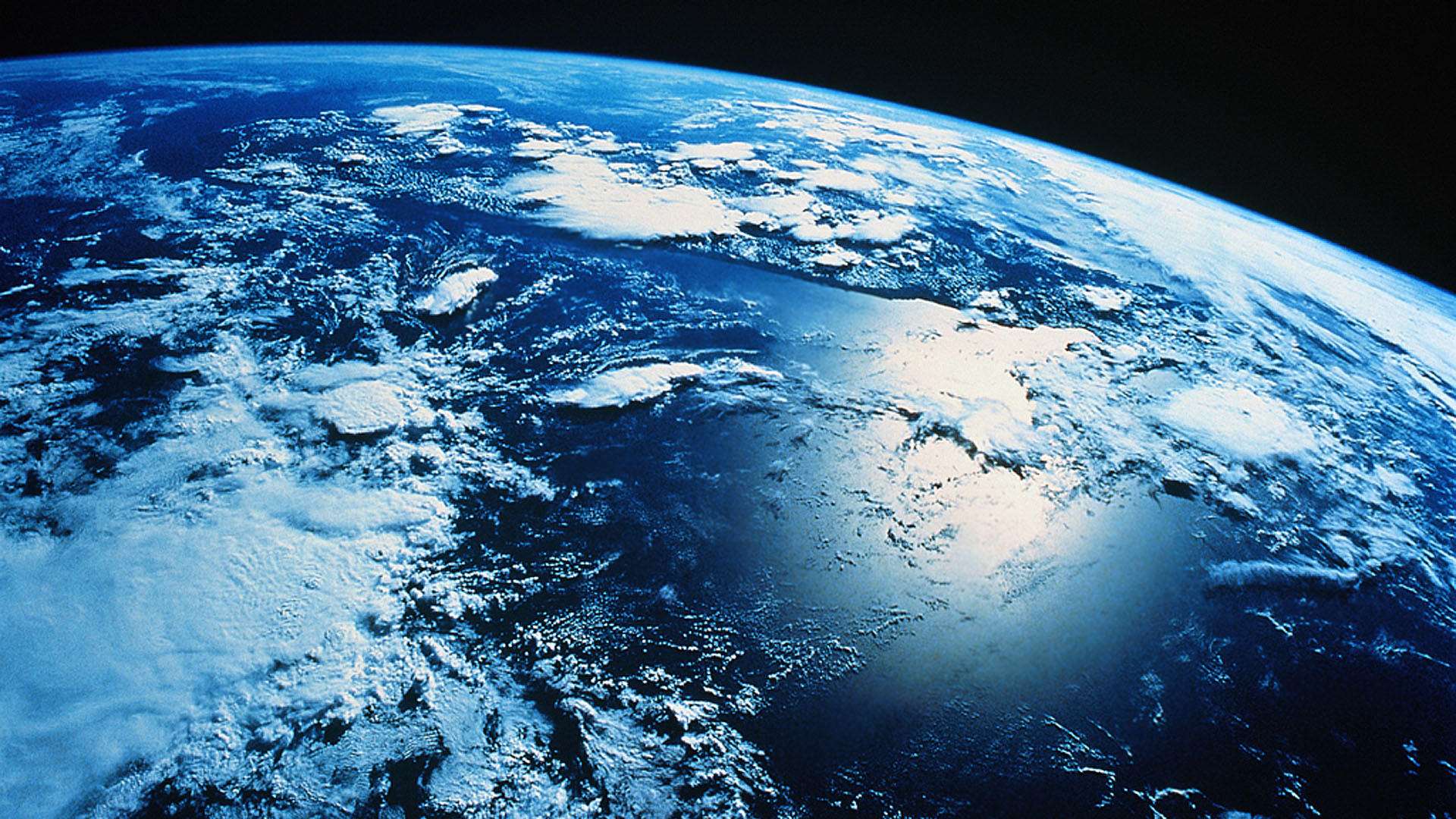
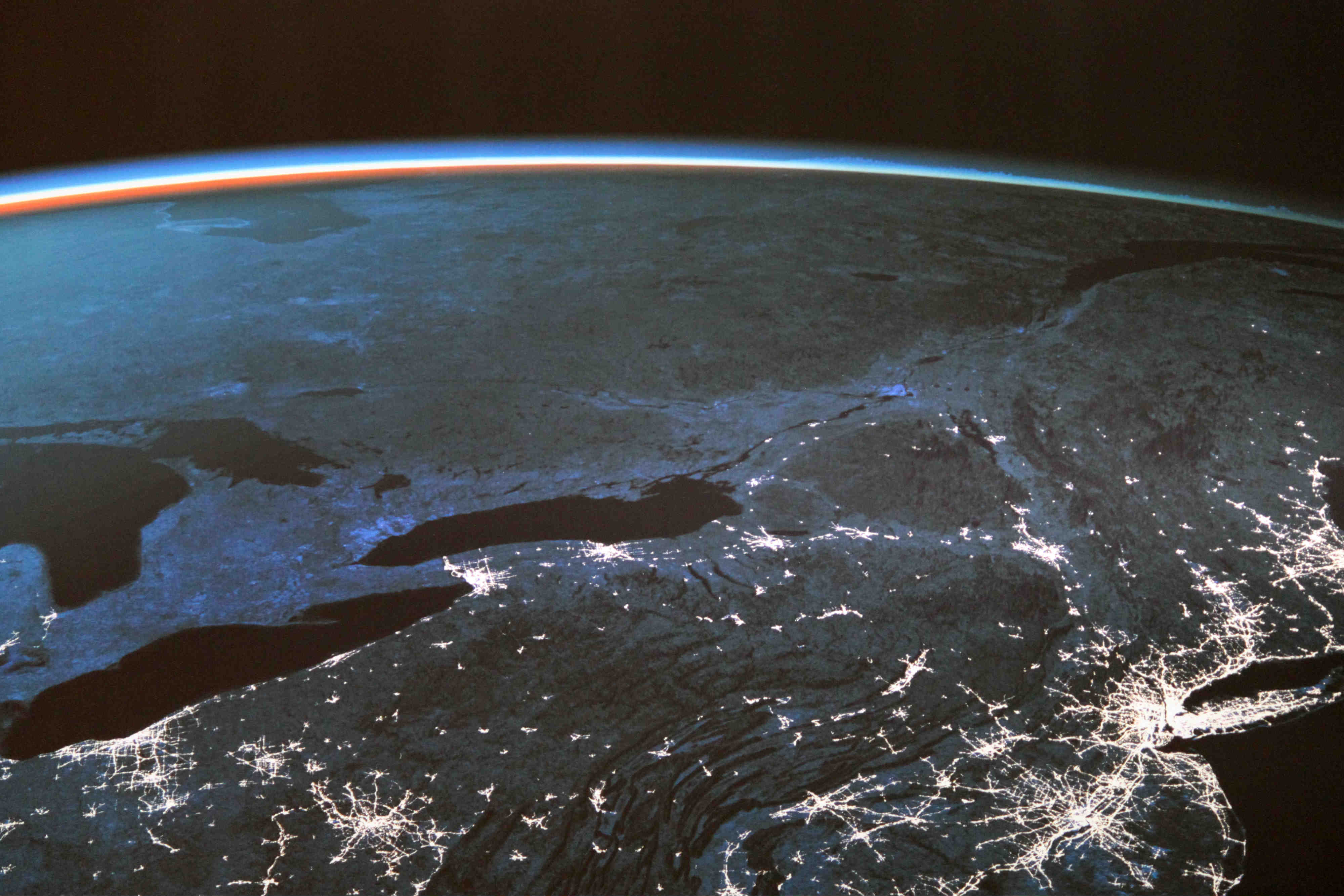
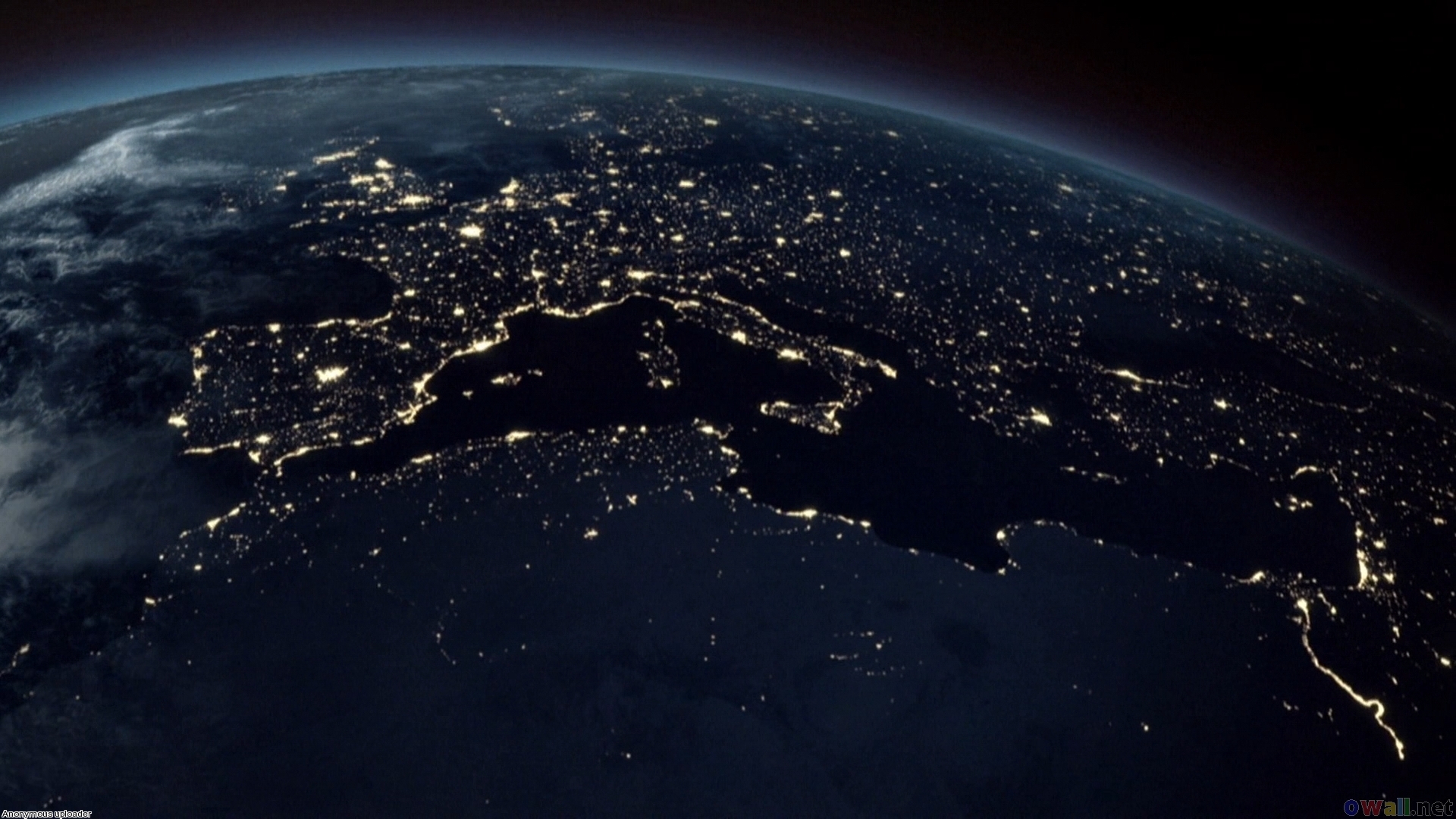
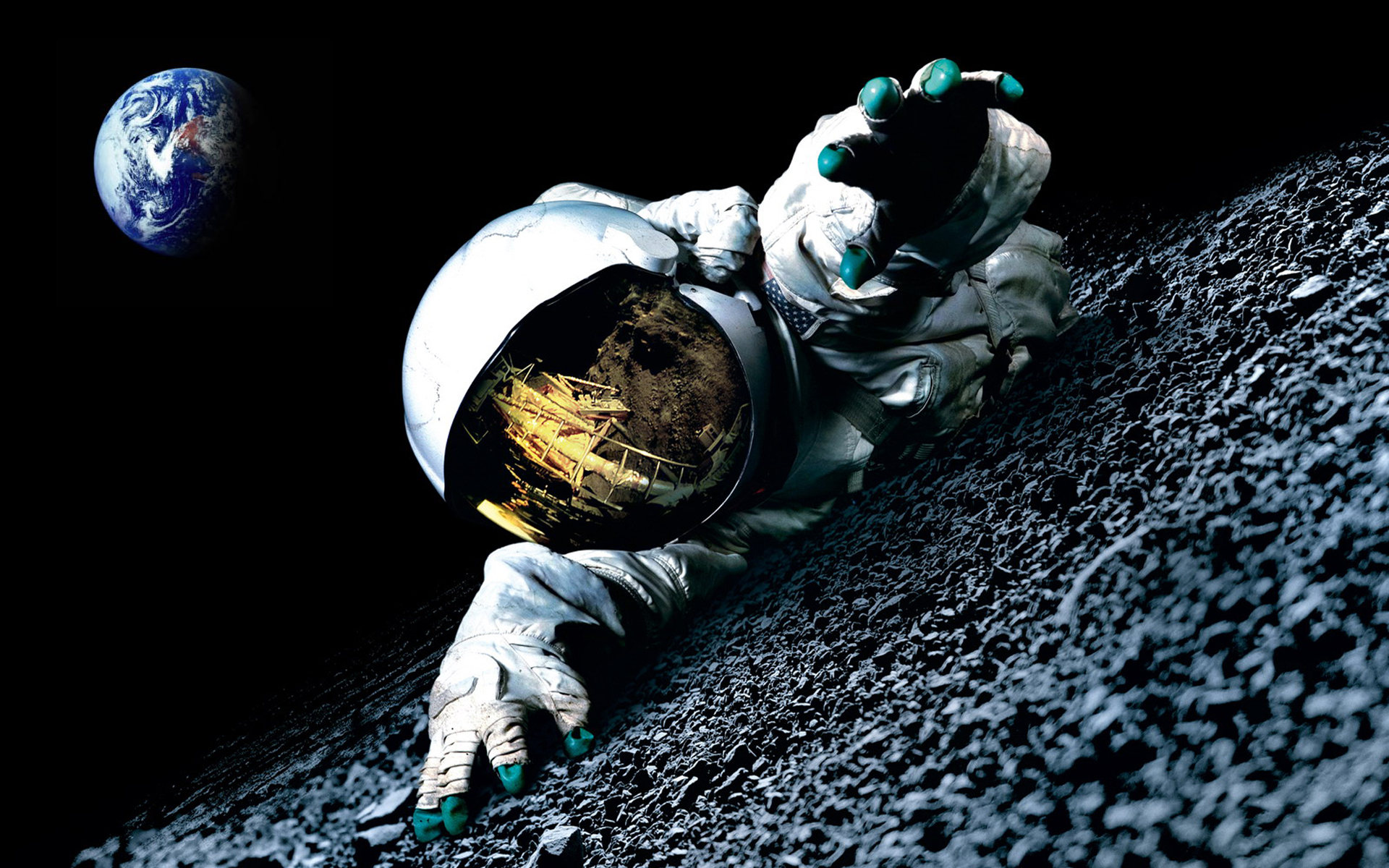
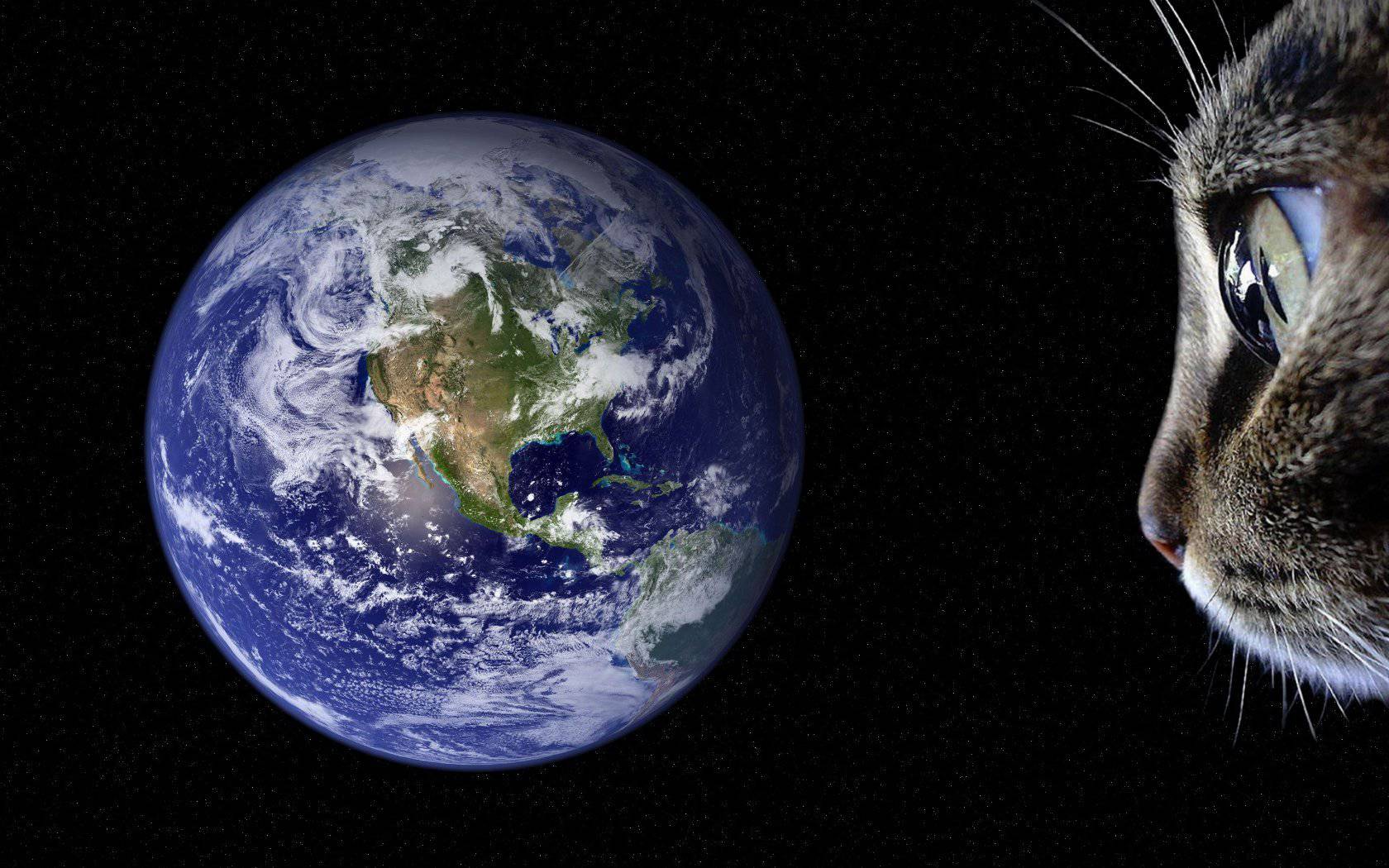
(Note: The existence of planet sized giant cat beings has not yet been confirmed)
I feel that any astronomy thread should have a star size chart/video included, so here again is the complimentary star size guide:
Thats all for tonight folks, hope you enjoyed..
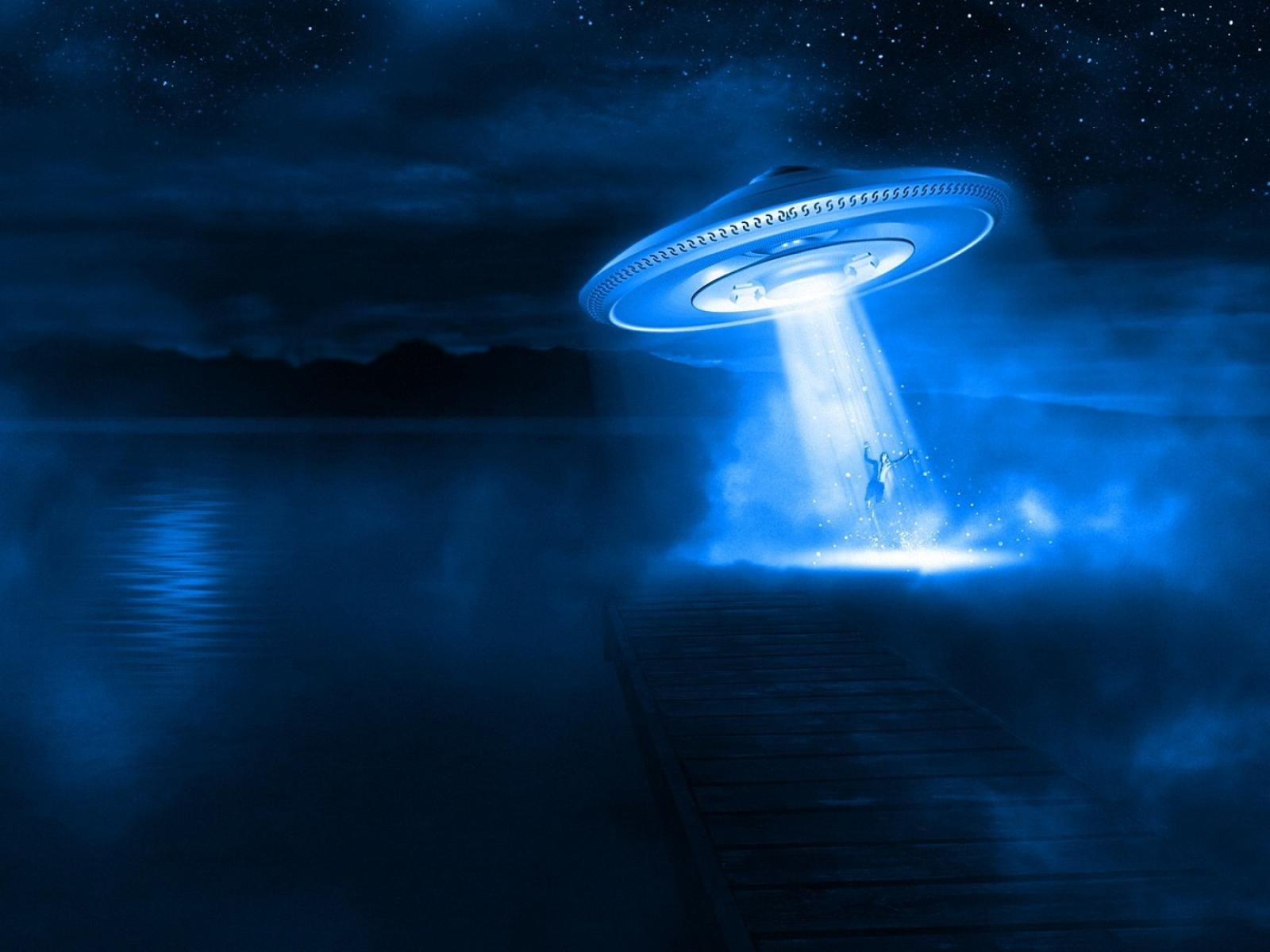
Cheers,
OG
But first I wanted to give a small overview of galaxies and the different types that exist..
Hubble's Tuning Fork and Galaxy Classification
Coincident with his discovery of Cepheid stars in Andromeda, Edwin Hubble was working in the mid 1920s to study other galaxies in more detail (although at that point it was still common terminology to refer to them as nebulae).
It is often the case with the discovery of a new class of objects that astronomers invent a classification scheme as a first step to try to understand these objects.
Hubble is credited with creating a classification scheme for galaxies, which is usually referred to as his “Tuning Fork” diagram.

A few telescopic surveys of the same galaxies were done to determine the different types of galaxies, one of them was called the "SINGS" (regular spectrum) survey"

and the other called "KINGFISH" NOTE the difference in appearances between the 2 surveys, remember they are imaging the same galaxies, but in spectrum's which are unseen to the naked eye (infrared, ultraviolet, etc):

link1
link2
And now for some obligatory space photos, which can all be found HERE:
Supernova 1987A:
Two decades ago, astronomers spotted one of the brightest exploding stars in more than 400 years.
Since that first sighting, the doomed star, called Supernova 1987A, has continued to fascinate astronomers with its spectacular light show. NASA's Hubble Space Telescope is one of many observatories that has been monitoring the blast's aftermath.
This image shows the entire region around the supernova. The most prominent feature in the image is a ring with dozens of bright spots. A shock wave of material unleashed by the stellar blast is slamming into regions along the ring's inner regions, heating them up, and causing them to glow. The ring, about a light-year across, was probably shed by the star about 20,000 years before it exploded.

Spiral Galaxy NGC 4622 Spins "Backwards":
Astronomers have found a spiral galaxy that may be spinning to the beat of a different cosmic drummer... To the surprise of astronomers, the galaxy, called NGC 4622, appears to be rotating in the opposite direction to what they expected..

Ring of Hot Blue Stars Pinwheels Around Yellow Nucleus of Hoag's Object Galaxy:

Two galaxies swing past each other in a graceful performance choreographed by gravity. This is one of hundreds of interacting and merging galaxies known in our nearby universe:

Hubble-Magellan Composite of M83:

Pandora's Cluster – Abell 2744:

Star V838 Monocerotis (V838 Mon):

When a massive star exploded, spewing out its gaseous layers into a turbulent, star-forming region of the Large Magellanic Cloud, it left behind this chaotic cloud of gas and dust. The star that produced this supernova remnant was probably 50 times the mass of our Sun:

Cassiopeia A: Colorful, Shredded Remains of Old Supernova:

Mars:

Multiple Impacts From Comet P/Shoemaker-Levy 9 on Jupiter:

Bright Clouds on Uranus:

Saturn's Ultraviolet Aurora:

Hubble Shows that Jupiter's Great Red Spot Is Smaller than Ever Seen Before:

In this image by NASA's Hubble Space Telescope, an unusual, ghostly green blob of gas appears to float near a normal-looking spiral galaxy:

Looking like an apparition rising from whitecaps of interstellar foam, the iconic Horsehead Nebula has graced astronomy books ever since its discovery over a century ago:

Dark Globule and Stellar Jet in the Carina Nebula:
The tadpole-looking feature in the center of this image is a nodule of cold hydrogen gas laced with dust.

Close Up of Ancient, White Dwarf Stars in the Milky Way Galaxy:

A planetary nebula called NGC 5189. The intricate structure of this bright gaseous nebula resembles a glass-blown holiday ornament with a glowing ribbon entwined:

The Bug Nebula, NGC 6302, is one of the brightest and most extreme planetary nebulae known. The fiery, dying star at its center is shrouded by a blanket of icy hailstones. This NASA Hubble Wide Field Plantery Camera 2 image shows impressive walls of compressed gas, laced with trailing strands and bubbling outflows:

Celestial Fireworks: Sheets of Debris From a Stellar Explosion (N 49, DEM L 190):

This is a false-color view of a planetary debris disk encircling the star HD 107146, a yellow dwarf star very similar to our Sun, this is the only disk to have been imaged around a star so much like our own.

Hubble Supernova Bubble Resembles Holiday Ornament:

The Veil Nebula, left behind by the explosion of a massive star thousands of years ago, is one of the largest and most spectacular supernova remnants in the sky. This is only a small section of it:

Hubble Sees a Cosmic Caterpillar:

The Necklace Nebula:

Saturn's Dynamic Auroras:

Doomed Star Eta Carinae:

Hubble Space Telescope Image of Globular Cluster NGC 6397

Anything that ever happened, to anyone, in all of history happened here:






(Note: The existence of planet sized giant cat beings has not yet been confirmed)
I feel that any astronomy thread should have a star size chart/video included, so here again is the complimentary star size guide:
Thats all for tonight folks, hope you enjoyed..

Cheers,
OG
edit on 10-11-2014 by OrionsGem because: (no reason given)
Simply amazing OP. I'm certian I would never have seen most of these if not for your thread.
ATS is about sharing knowledge, I know some will say they have seen these before or these have already posted...
I for one thank you as I love all things space related.
ATS is about sharing knowledge, I know some will say they have seen these before or these have already posted...
I for one thank you as I love all things space related.
I hope for the day I can spend eternity among the stars.
Thanks for one of the best threads on ATS.
Thanks for one of the best threads on ATS.
please dont stop posting these...
So amazing to look at , thank you for making my Sat night better...
So amazing to look at , thank you for making my Sat night better...
Gosh,some of the coolest stuff I have ever seen and this is barely scratching the surface of what is out there!
Fantastic, can't wait for the next one
Fantastic, can't wait for the next one
What an amazing universe we live in!
It's a work of art as much as anything else.
Thanks OP.
It's a work of art as much as anything else.
Thanks OP.
Was thinking about part 3 of the thread, perhaps an Ancient Aliens edition?
OG
OG
Awesome stuff! Thank you for the effort.
Astronomy pictures never get old. Just too much stuff to get amazed about.
Astronomy pictures never get old. Just too much stuff to get amazed about.
Wow! What a humble experience. Thank you for your time and effort.
Do you own a telescope?
Do you own a telescope?
My best to the OP. S&F's all around! good post! I always enjoy good galactic pics. - Just a space traveler...
And we are just sitting here on this ONE planet circling ONE single star. what the hell man?
I demand a craft capable of interstellar travel, and a cyborg body!
Honestly though. This vast expanse has existed 130 million times longer than I ever will.
I can only imagine the depth it's hiding in that ethereal darkness.
I demand a craft capable of interstellar travel, and a cyborg body!
Honestly though. This vast expanse has existed 130 million times longer than I ever will.
I can only imagine the depth it's hiding in that ethereal darkness.
We are so small and unimportant in the grand scheme.
Our little ball of mud could be gone tomorrow and the universe would not even blink.
Peace
Our little ball of mud could be gone tomorrow and the universe would not even blink.
Peace
originally posted by: yourmaker
And we are just sitting here on this ONE planet circling ONE single star. what the hell man?
I demand a craft capable of interstellar travel, and a cyborg body!
Honestly though. This vast expanse has existed 130 million times longer than I ever will.
I can only imagine the depth it's hiding in that ethereal darkness.
We totally dont have long enough lifespans to enjoy all this awesome stuff...I say bring on the cyborg clone bodies and lets xfer some minds.
OG
originally posted by: jude11
We are so small and unimportant in the grand scheme.
Our little ball of mud could be gone tomorrow and the universe would not even blink.
Peace
Yes but what if its a holographic universe....if we are all quantumly entangled with everything else then distance and light years would not matter, as quantum particles can be vast distances apart...
Makes you wonder if as a human, you are made up of stars...or are the stars made up of us? Is there a way to attain sentient galactic, and then universal consciousness?
OG
Makes me want to play EVE Online again.
Great thread and images, OP.
Great thread and images, OP.
new topics
-
Hate makes for strange bedfellows
US Political Madness: 1 hours ago -
Who guards the guards
US Political Madness: 3 hours ago -
Has Tesla manipulated data logs to cover up auto pilot crash?
Automotive Discussion: 5 hours ago -
whistleblower Captain Bill Uhouse on the Kingman UFO recovery
Aliens and UFOs: 10 hours ago
top topics
-
Lawsuit Seeks to ‘Ban the Jab’ in Florida
Diseases and Pandemics: 17 hours ago, 23 flags -
CIA botched its handling of sexual assault allegations, House intel report says
Breaking Alternative News: 15 hours ago, 11 flags -
whistleblower Captain Bill Uhouse on the Kingman UFO recovery
Aliens and UFOs: 10 hours ago, 10 flags -
Who guards the guards
US Political Madness: 3 hours ago, 7 flags -
Hate makes for strange bedfellows
US Political Madness: 1 hours ago, 6 flags -
1980s Arcade
General Chit Chat: 12 hours ago, 5 flags -
Teenager makes chess history becoming the youngest challenger for the world championship crown
Other Current Events: 14 hours ago, 4 flags -
Deadpool and Wolverine
Movies: 13 hours ago, 4 flags -
Has Tesla manipulated data logs to cover up auto pilot crash?
Automotive Discussion: 5 hours ago, 2 flags
active topics
-
Candidate TRUMP Now Has Crazy Judge JUAN MERCHAN After Him - The Stormy Daniels Hush-Money Case.
Political Conspiracies • 660 • : Threadbarer -
Hate makes for strange bedfellows
US Political Madness • 7 • : budzprime69 -
Europe declares war on Russia?
World War Three • 62 • : 777Vader -
"We're All Hamas" Heard at Columbia University Protests
Social Issues and Civil Unrest • 222 • : FlyersFan -
1980s Arcade
General Chit Chat • 13 • : Bluntone22 -
British TV Presenter Refuses To Use Guest's Preferred Pronouns
Education and Media • 110 • : Annee -
Michael Avenatti Says He Will Testify FOR Trump
US Political Madness • 61 • : JadedGhost -
Who guards the guards
US Political Madness • 2 • : budzprime69 -
New whistleblower Jason Sands speaks on Twitter Spaces last night.
Aliens and UFOs • 41 • : baablacksheep1 -
whistleblower Captain Bill Uhouse on the Kingman UFO recovery
Aliens and UFOs • 11 • : baablacksheep1
